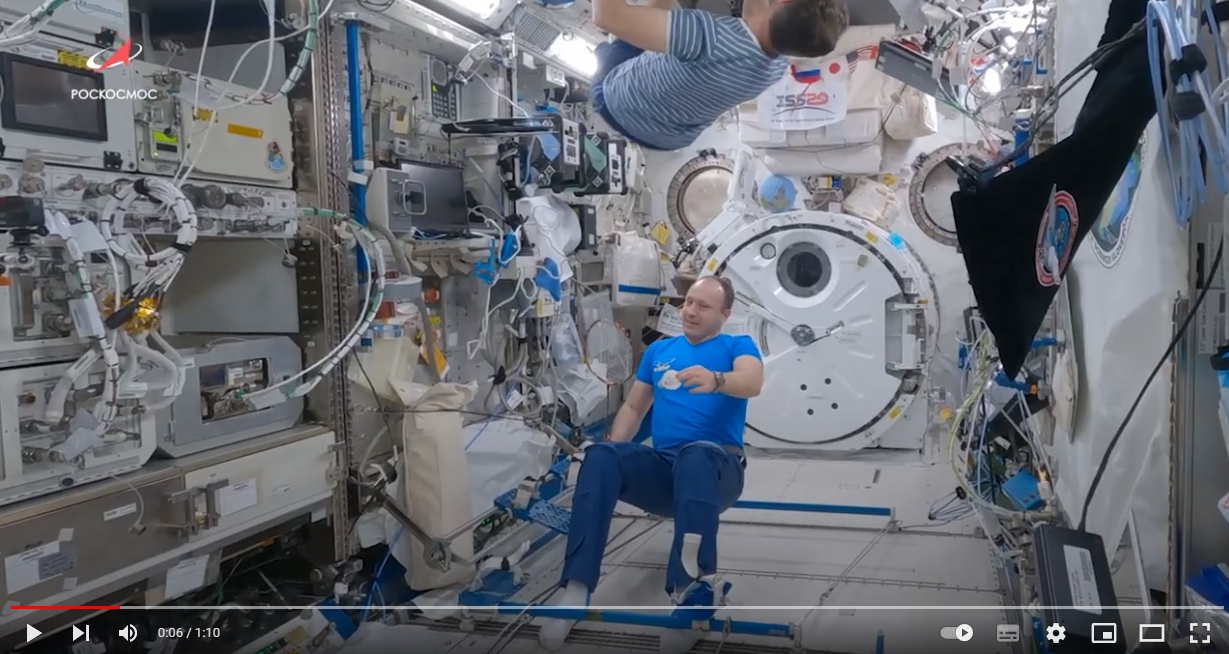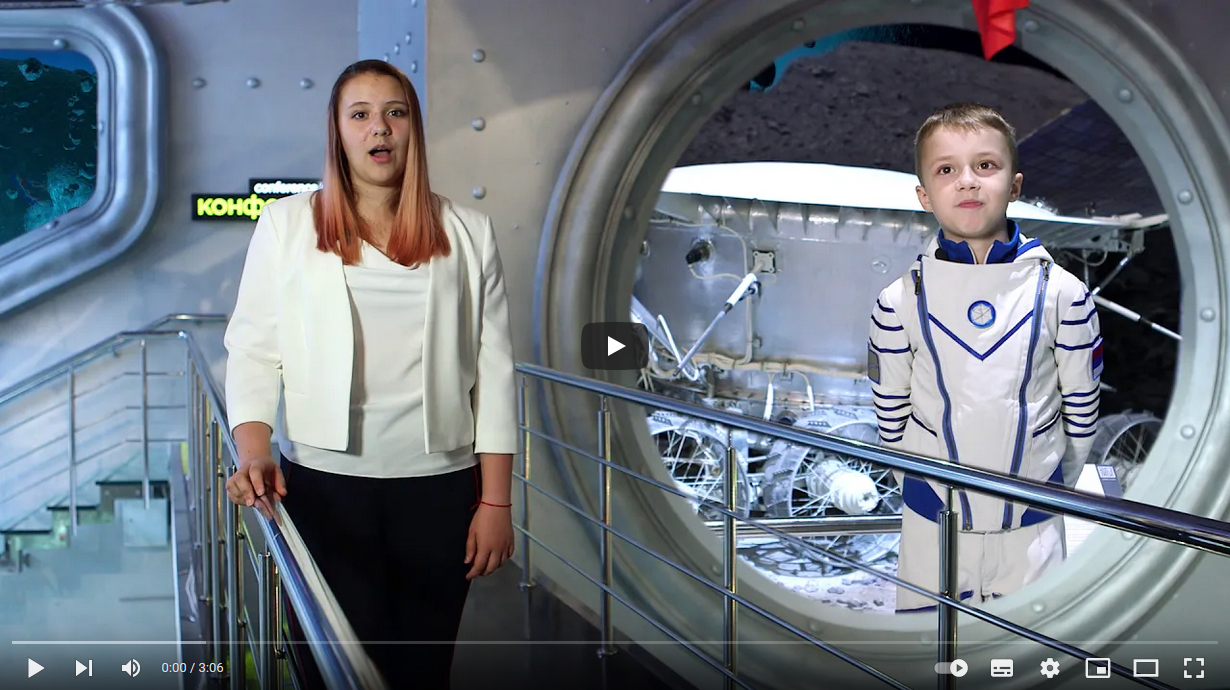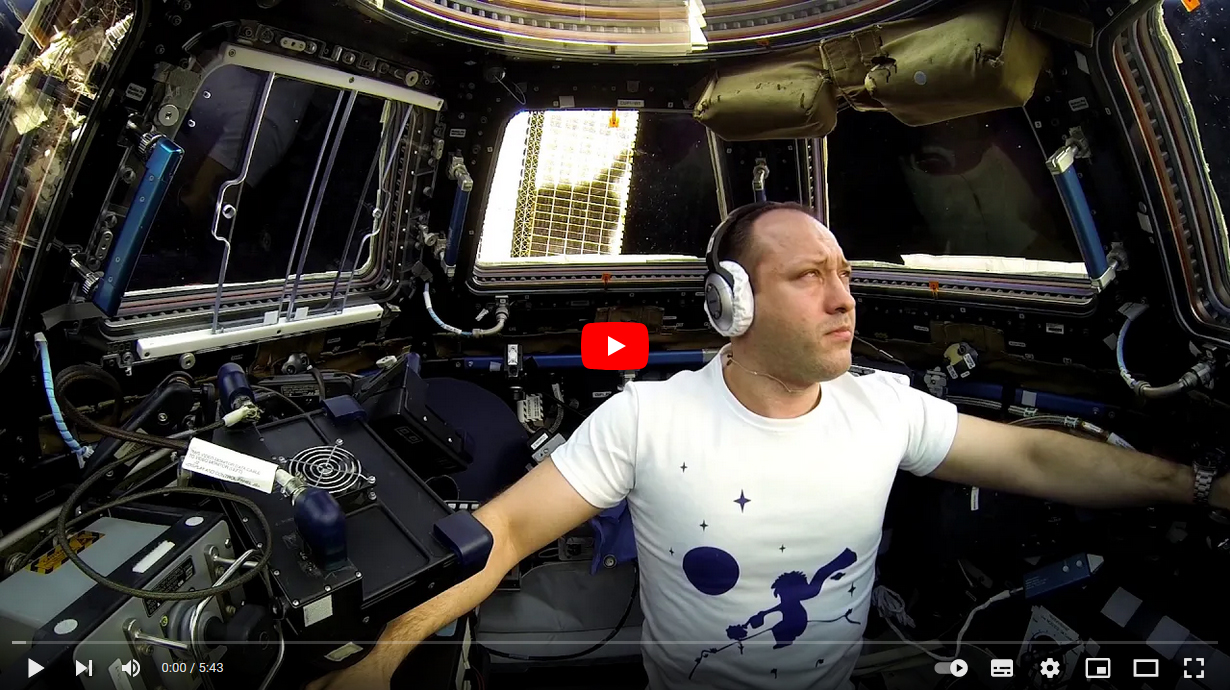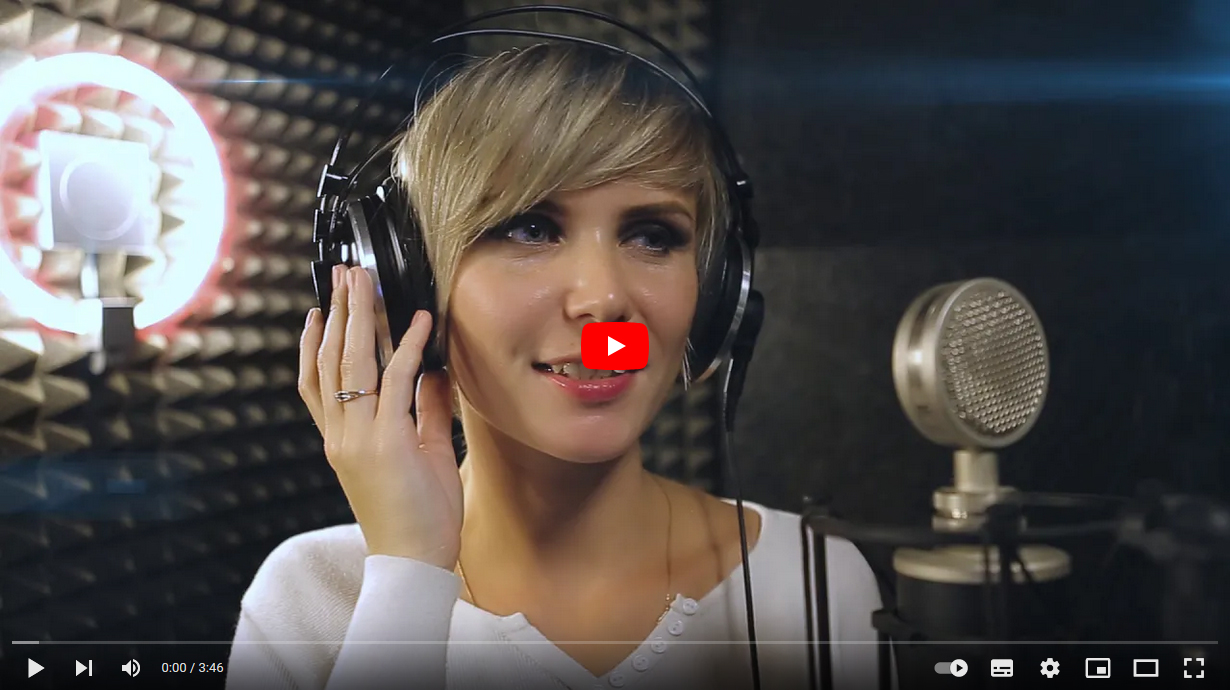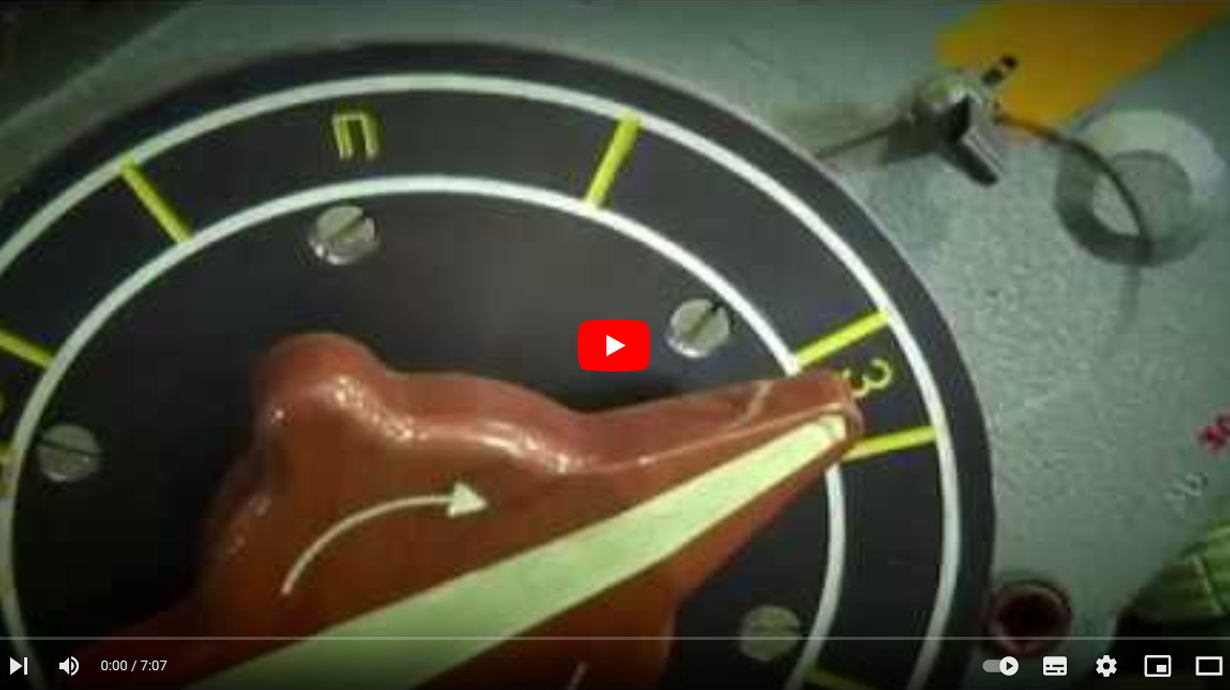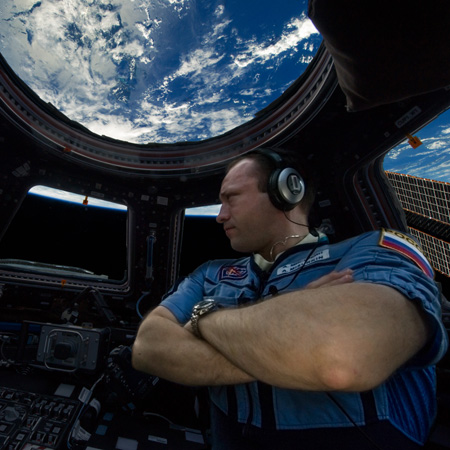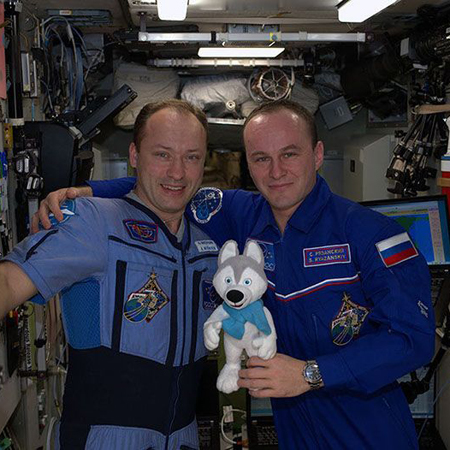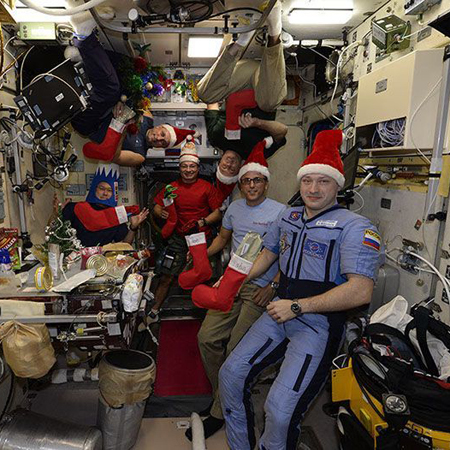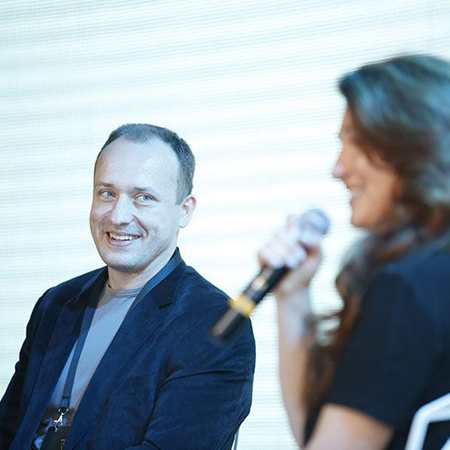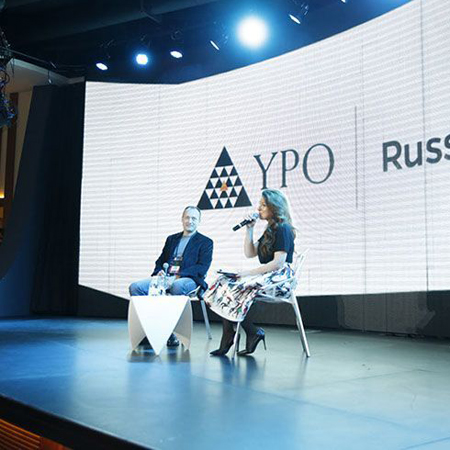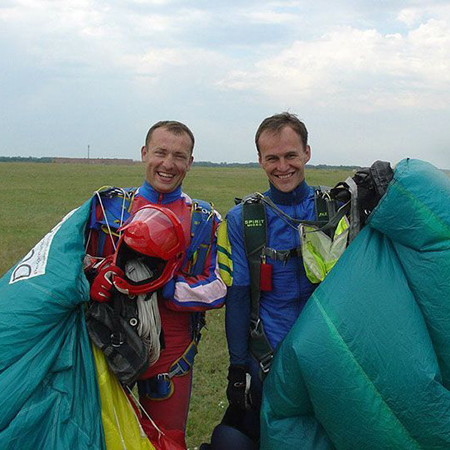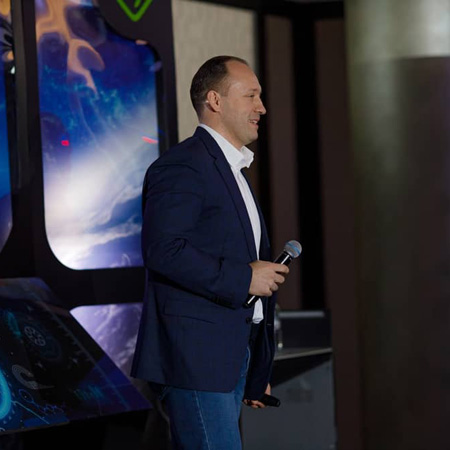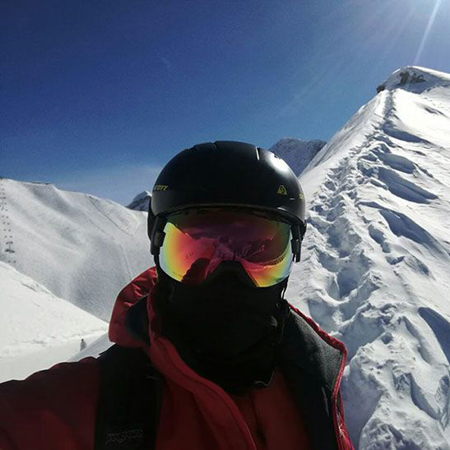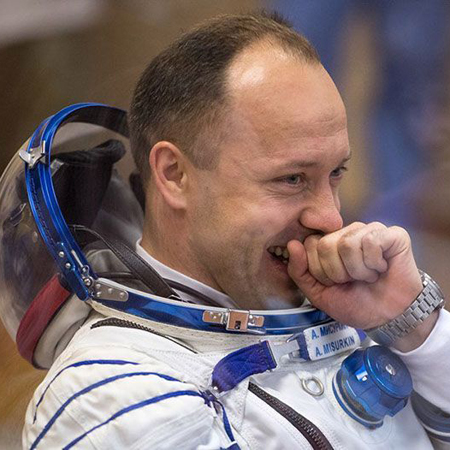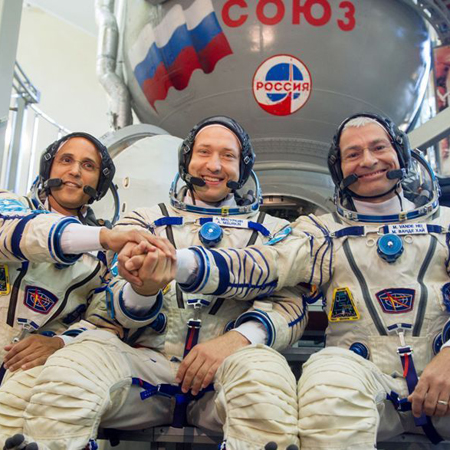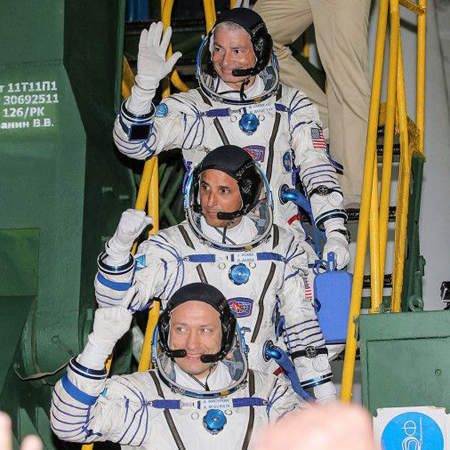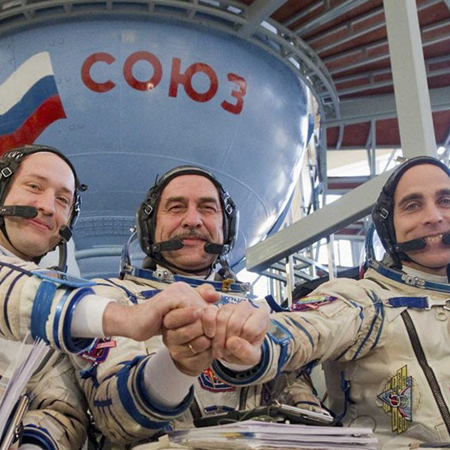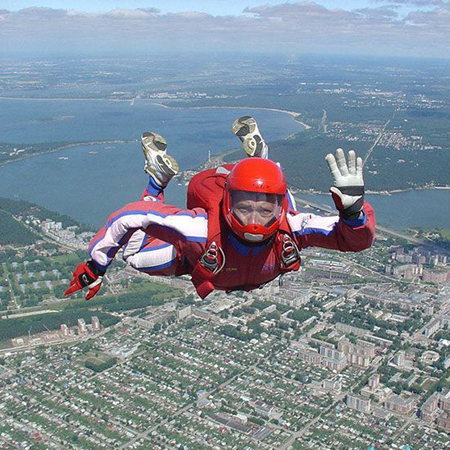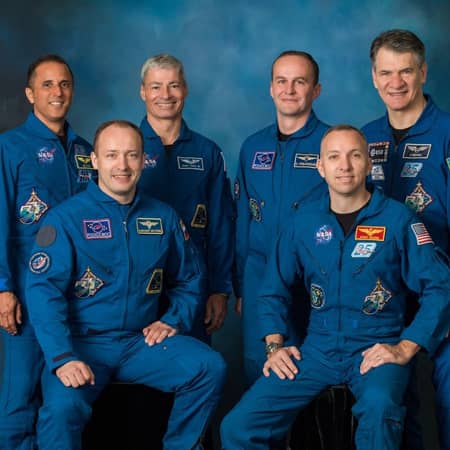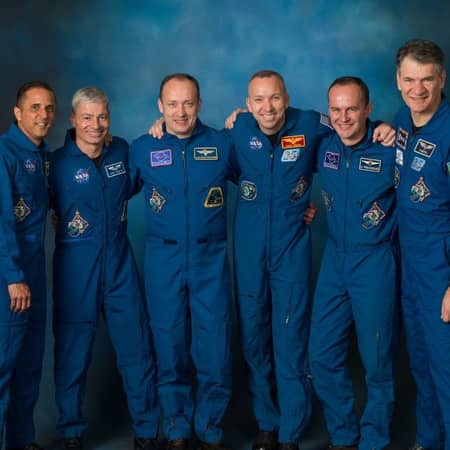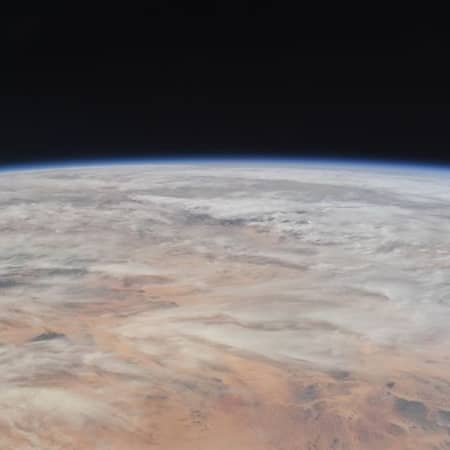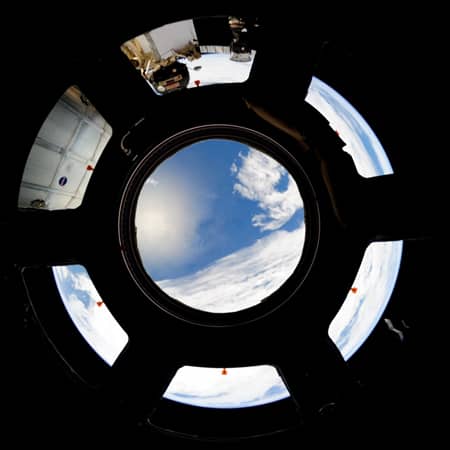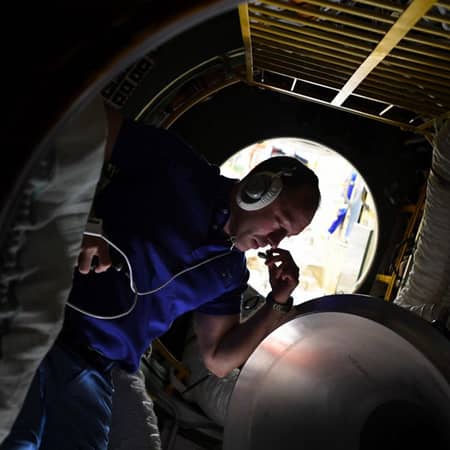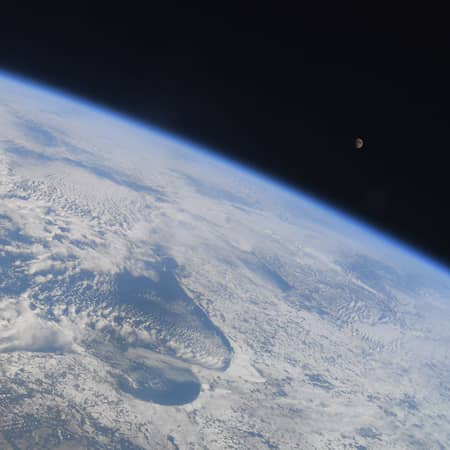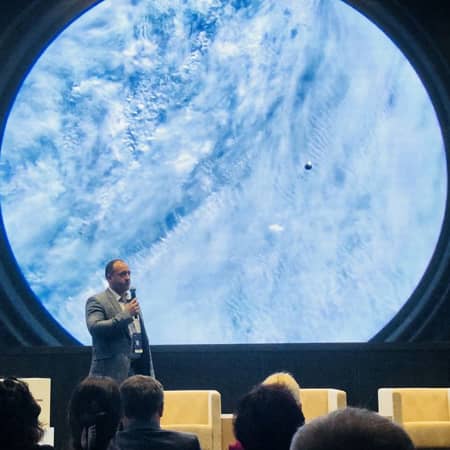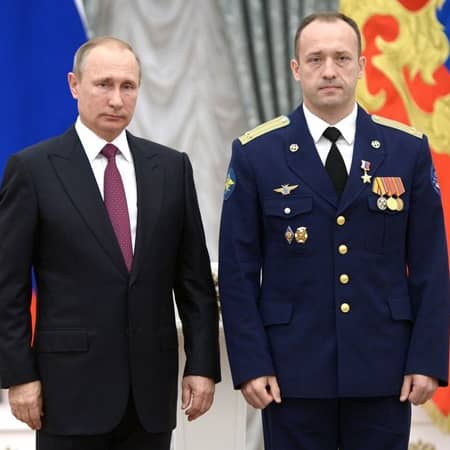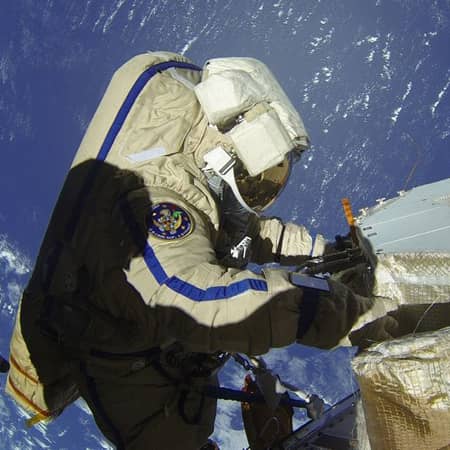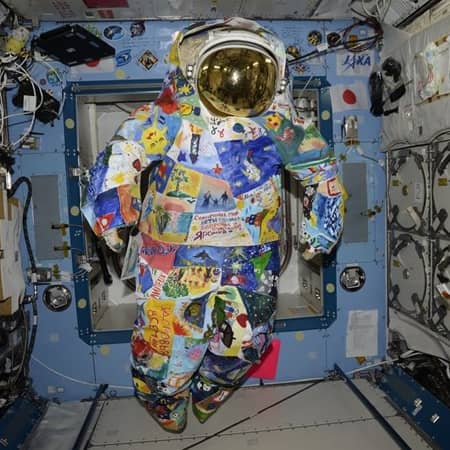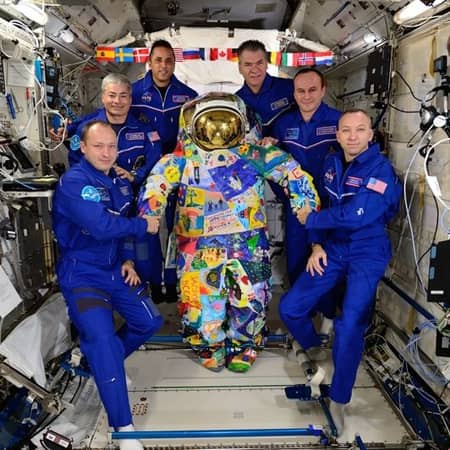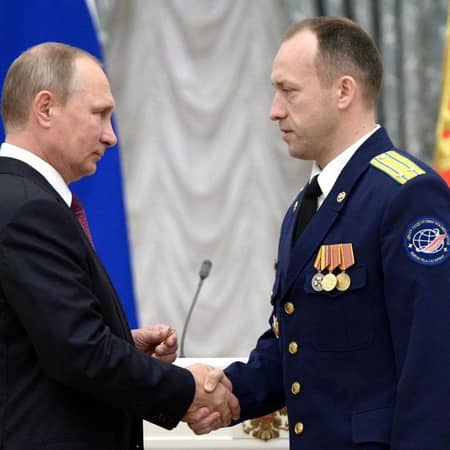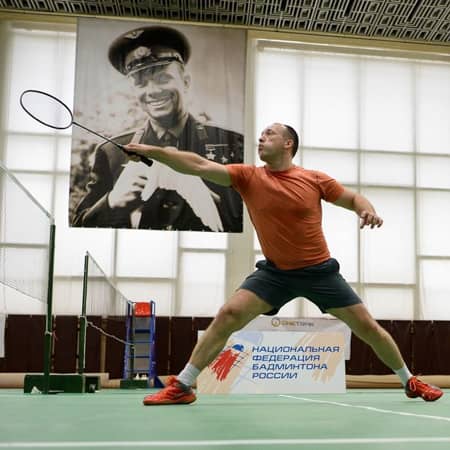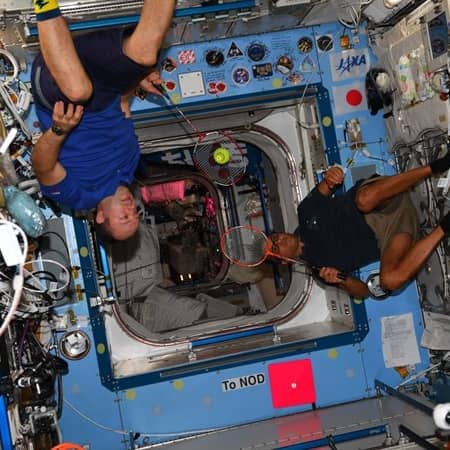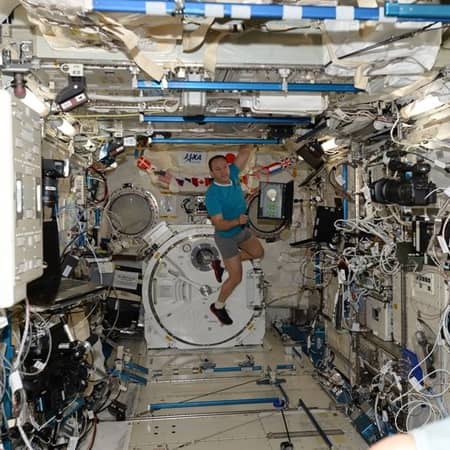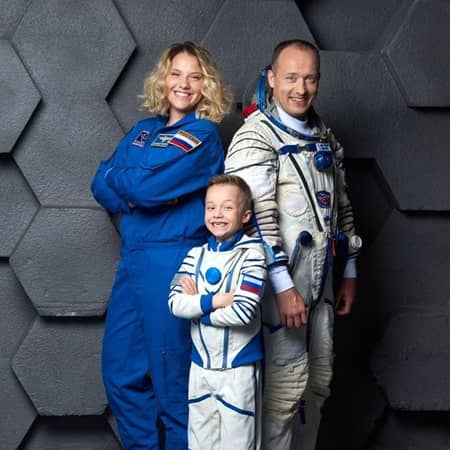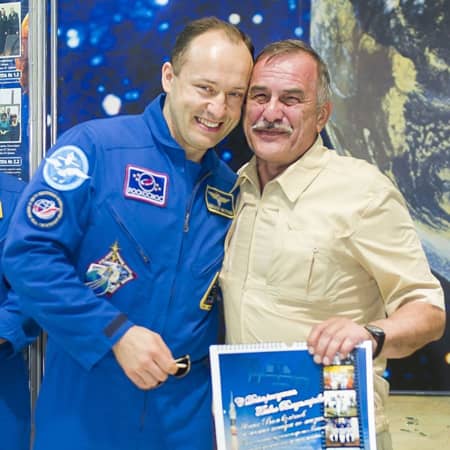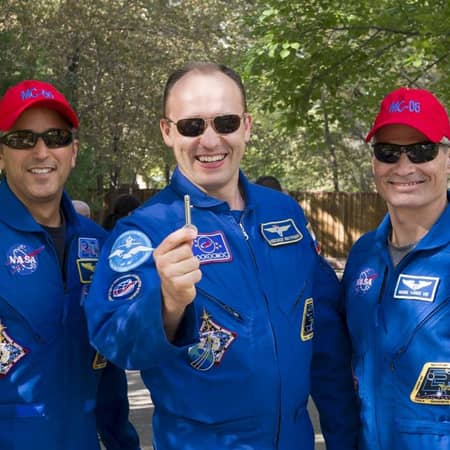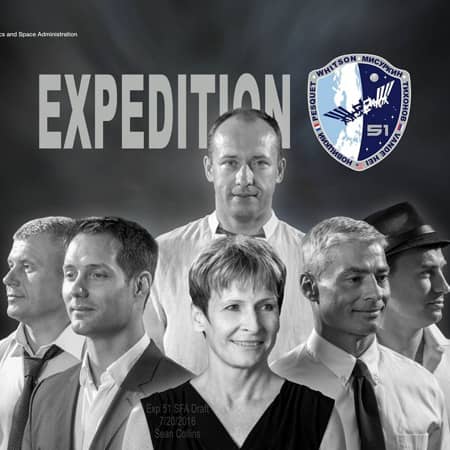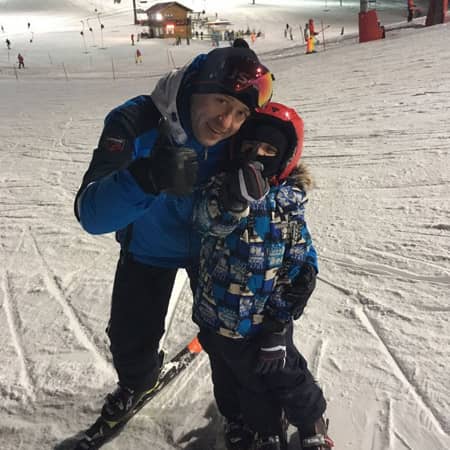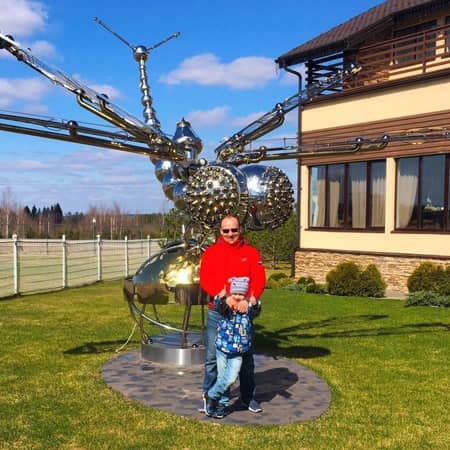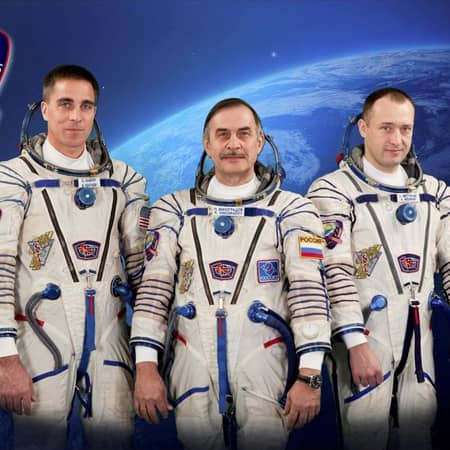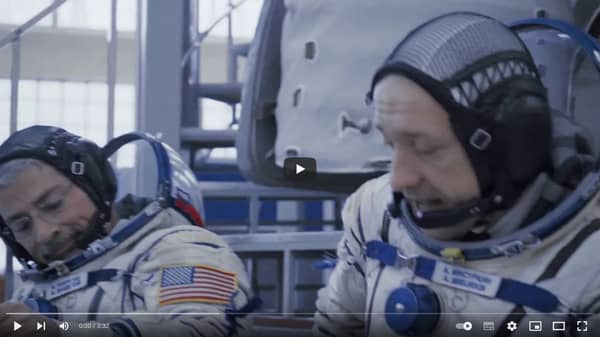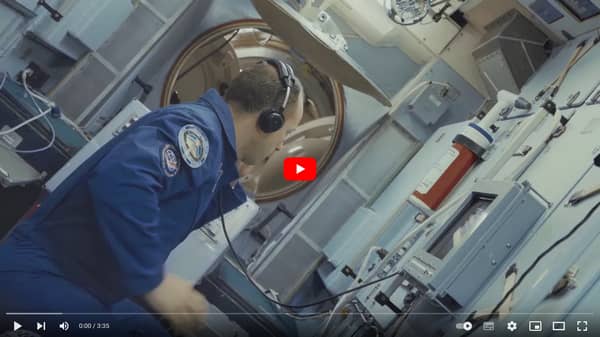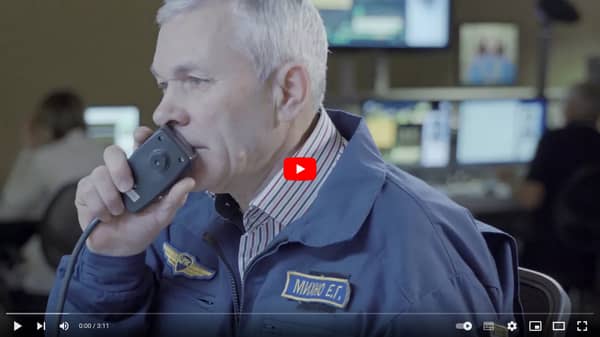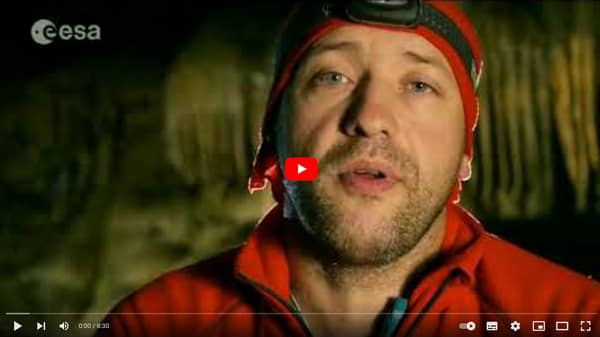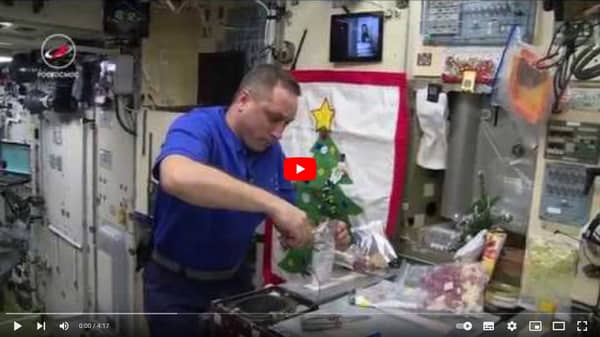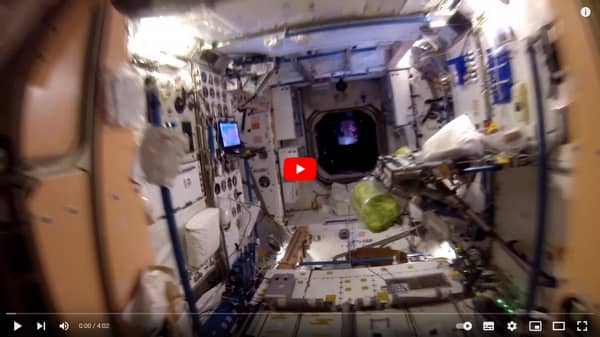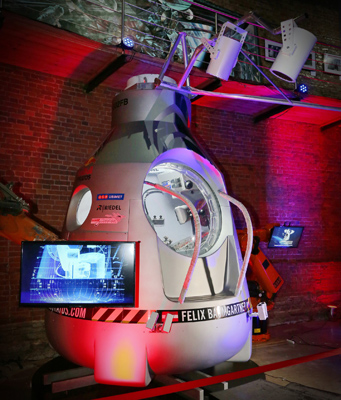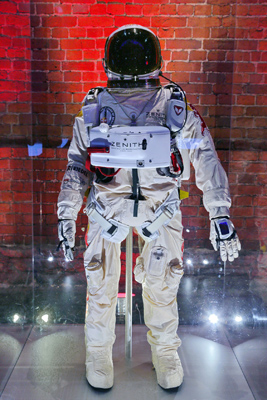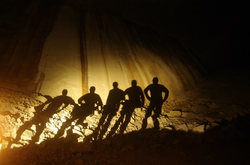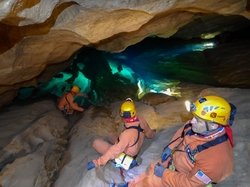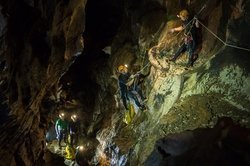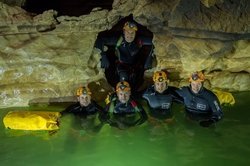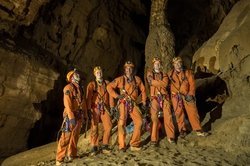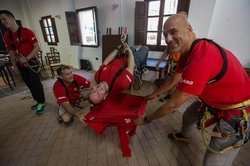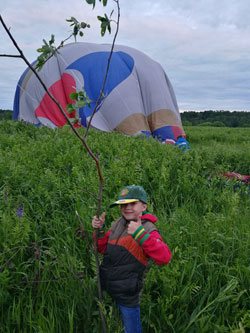


ABOUT MYSELF
Why do we need to fly to space? Exploring the world around us, we get to know ourselves better»
Achievements
- Completed three spaceflights and four spacewalks (EVAs).
- Twice set the national record for the longest-duration spacewalk — in 2013 and 2018 (the current record).
- Set an unofficial Guinness World Record in badminton by playing with all comers for 24 hours straight.
- Has 10 years of experience in motivational speaking.
I was born and spent my early years in Smolensk region, the homeland of the first cosmonaut on Earth. Later, I moved to Oryol, where childhood fantasies about flying to other worlds and the desire to go where no one had been before evolved into a goal — to become a cosmonaut.
There, I took my first steps towards my goal. I started independent glider flying long before I learned to drive a car. After finishing school, I entered the Kacha Higher Military Aviation School for Pilots (Volgograd). I continued my studies at Armavir Military Aviation Institute, graduating with a gold medal, which gave me the right to choose my future service location.
In the early 2000s, amid chronic fuel shortages and problems with aviation equipment, my only choice was to remain a flight instructor in one of the Institute’s regiments, as there was an opportunity to fly. My sole focus then was to become a 1st class flight instructor. Having achieved this goal, I was ready for the next step — joining the cosmonaut corps.
Throughout 2006, I went through various stages of selection for the Cosmonaut Team. In January 2007, as part of the 14th recruitment to the Cosmonaut Training Center, we began general space training as cosmonaut candidates. An endless number of lectures and exams alternated with parachute jumps, underwater immersions, flight training, and survival exercises. Extensive travel and a wide circle of acquaintances followed. All this happened in a special atmosphere, among extraordinary, open, responsive, kind, and brave people. Our recruitment was a united whole — a team, which has always been and remains one of my most important values. I felt as if I had entered a different, parallel world where my horizons expanded multiple times. I was happy to live in it, happy to understand that all this gave me the opportunity to develop and move forward. Only one fact sometimes caused sadness — I now had much less time to fly planes.
Step by step, I approached my cherished goal and simultaneously the most important test in my life. Who would have thought that the «How to Become a Cosmonaut» plan, devised more than 20 years ago by my school teacher Natalia Vladimirovna Afanasyeva, actually works!
On March 29, 2013, at the age of 35, departing on the 35th expedition to the ISS and becoming the 116th cosmonaut of Russia, I achieved the goal I had set for myself 23 years earlier.
Subsequently, over 8 years, I went to space twice more: as the commander of an ISS expedition and as the crew commander of the first fully commercial flight to the ISS. Twice I set a record for the duration of work in open space in Russian spacesuits.
Besides unforgettable impressions, this experience allowed me to understand that people often explain as luck what is actually the result of systematic work. Famous Russian rock singer Garik Sukachev is 300% right: «This phrase is worthless: «You got lucky.»
It was a revelation for me that being friends and being a team are two completely different stories, but I understood what it takes to become a team, realized the value and role of qualities such as trust and responsibility. In general, mindfulness began to play a much bigger role in my life.
All this was a discovery of the inner world, but speaking of the outer world, observing our planet from space gives the most unforgettable impressions associated with the sense of magic in the process of creation. This contemplation not only filled me with energy but also prompted me to reflect on our place in the universe, whether we will find other worlds similar to ours, when this will happen, why we need space at all, what awaits our civilization in the future, and so on.
Questions and the search for answers are what moves forward both civilization as a whole and each of us individually. Here are two questions I found answers to:
— Is space flight the destiny of the chosen ones?
People are not born cosmonauts, this is what they become. And this is within many people’s power, and the main obstacle on this path is stereotypes that do not allow expanding horizons in people’s minds.
— Why does humanity need to fly into space?
There are several reasons, but I think the first of them is that by getting to know the world around us, we better know ourselves. And knowing ourselves is the only way to preserve civilization and life on our planet.
In general, the goal-challenge of the first part of life has been achieved, new goals appear on the horizon. At 45 years old — the flight is normal.

My topics

We Are All Capable of More
Becoming a Space Crew
Managing a Team During Transformations
A View from Orbit
Stress Management in Space
What Trust and Responsibility Mean
My Path to Space
A Look from Orbit at the Future of Humanity
The Key to Space Mission Success
Personal Development Life Hacks
On Earth as in Space
Behind every breakthrough solution in space exploration stand people who dared to think beyond the conventional. They created «artificial gravity» long before humanity learned to control gravitational fields. They found ways to simulate Earth conditions where the laws of physics seemed to make it impossible.
Working with these technologies, I often ask myself: what enables some people to see solutions where others see only obstacles? Why do some live within established boundaries while others push the horizons of what’s possible? Each of us lives within the boundaries of our individual reality. These limits, like the boundaries of the universe, are a barrier that seems impossible to cross. But we have the power to push these horizons as far as we want. I invite you to explore the nature of breakthrough achievements and understand how each of us can expand the boundaries of our own reality.
Having spent 15 years in the cosmonaut corps and almost a year in space, I can say with certainty: in space, there are no «good specialists» — there is either a crew capable of solving any challenge, or a group of professionals who might fail even in a simple off-nominal situation. What transforms a group of experienced cosmonauts into a single organism? Why some commanders inspire heroic deeds, while others, despite all their experience, cannot achieve even basic mutual understanding? What is that invisible foundation without which even the most experienced professionals remain just a group of individuals? I invite you to explore the subtle art of building a space crew.
The history of space exploration is rich with examples where leadership and team cohesion determined the success of a mission. The feat of Vladimir Dzhanibekov and Viktor Savinykh, who restored the uncontrolled Salyut-7 station in 1985, and the triumph of the Apollo 13 crew, who turned a potential catastrophe into a victory of the human spirit, clearly demonstrate how adapting to unforeseen circumstances and changing established processes can turn a crisis situation into success.
Implementing changes, whether it’s a new system aboard the ISS or a company restructuring, is always a challenge for the team. Here, the key role is played not by managing people, but by true leadership. As the wisdom goes: «You can’t manage people. You can only lead them!» It is this approach that allows a team to accomplish the impossible, going beyond the familiar and achieving unprecedented heights.
My experience of spacewalks has shown that even minimal changes in processes can have colossal consequences. This is equally applicable to business. The ability to lead a team through these changes is a key skill of a modern leader in any field.
Three space flights taught me the fundamental truth: success under uncertainty is built on systematic preparation. It is the deep understanding of core principles that provides the foundation for finding solutions in non-standard situations. We live in an era where the pace of change on Earth rivals the dynamics of spaceflight. Technologies develop exponentially, familiar business models become obsolete faster than they can pay off, and global crises have become our constant companions.
What approaches and principles truly work under uncertainty and help find effective solutions in our constantly changing world? I look forward to sharing my observations.
On my way to the first flight, I managed to do this unconsciously. But an ISS expedition is more than just technical challenges. It’s months of isolation in a confined space where you can’t simply step outside for fresh air or take a day off. It’s the constant need to maintain ultimate concentration, where the slightest mistake can become critical. It’s life in a state of continuous tension, where burnout becomes as real a risk as any technical malfunction. That’s why in the following 10 years of my space career, I had to consciously search for inner resources and motivation.
How do you keep your inner fire burning without letting it turn to ashes? Where do you find resources when they seem depleted? How do you transform stress from a destructive force into a source of energy? I invite you to explore the art of managing your own state in the extreme conditions of spaceflight — after all, life on Earth today increasingly resembles life in space.
Four times I had the opportunity to perform spacewalks. Twice we set the record for the longest duration spacewalk in Russian spacesuits. Each spacewalk is preceded by serious preparation and practice of possible scenarios both on Earth and in flight. Yet, space always presents surprises that must be dealt with in the moment, relying on yourself, your partner, and the voice of the mission control specialist in your headset.
What determines success in high-risk conditions? What role do forecasting and situation modeling play? How do you build a system for preventing fatal risks, and why does quality team communication become the decisive safety factor? I invite you to explore the principles of working in conditions where the cost of mistakes is truly high.
Once I was asked to talk about the role of trust in space activities. This made me review my spaceflight experience through this particular «filter.» Then it became clear why I wasn’t afraid either at launch or during reentry, why I was honored to be assigned to a crew with such an intense and challenging flight program. That’s why the pair of qualities «trust» and «responsibility» appear to me as essential in our lives as the double helix of DNA.
How does trust in the system affect the effectiveness of each team member? How is the crew’s cultural and value platform formed? How does trust influence the quality of communication in the system and, consequently, the achievement of the ultimate goal? I invite you to explore how professionalism, openness, honesty, and mutual support create that invisible foundation upon which the success of any team is built.
When you begin to analyze your journey, you often discover that behind seeming random success lie quite specific principles. Principles you followed without even realizing it. As if space itself was suggesting rules, following which opens a path to the impossible.
What does preparing for spaceflight have in common with achieving any ambitious goal? What unwritten laws determine success in space and in life? How do you turn «impossible» into «done»? I invite you to uncover the universal rules that help transform dreams into reality — whether it’s space flight or any other goal that seems unattainable.
On my way to this goal, I often faced misunderstanding. Most people simply didn’t take such an aspiration seriously. Looking back today, I know for certain: the boundaries of our capabilities exist primarily in our minds.
Why do some people achieve what others consider impossible? How do you find your true calling? Where do you find strength to move forward when obstacles seem insurmountable? I’ll be glad to share my story — from a schoolboy’s dream through years of preparation and training to scientific experiments aboard the ISS — and tell you how to transform your boldest goal into reality.
We stand on the threshold of technological singularity — a moment when the combination of breakthrough technologies can qualitatively transform our civilization. Artificial intelligence, biotechnology, quantum computing — each of these technologies is capable of radically changing the world. And their synergy could create a reality that we cannot yet imagine.
But as noted by the outstanding science fiction writer and thinker Isaac Asimov, the main sorrow of modern times is that science gains knowledge much faster than society acquires wisdom. Will we be able to cope with the challenges that these incredible possibilities bring? Using a cosmological metaphor, we could say we face a choice: a jump through a ’wormhole’ into a new quality of civilization or an irreversible fall into the black hole of self-destruction.
Will we manage to restore the balance between technological progress and the wisdom of its application? Who should do this and how, and what is each of our roles in this process? History knows examples of people who changed the world for the better, and by analyzing their experience, we must make the right choice.
When a month after returning to Earth, Maezawa-san expressed his desire to make another flight with Roscosmos and with me personally, I understood: it’s not about strong words about personal brand. It’s about people trusting people. And this trust is built not on marketing, but on how deeply you’re involved in the project, how sincerely you care about its success, regardless of the scale of your role in it.
How does a project transform when you take responsibility for its overall success? Why are awareness and engagement more important than formal duties? What role does personal responsibility play in building trust? I invite you to explore how daily actions and decisions create the image that people are willing to trust their dreams to.
Space became not only a test of physical capabilities but also a unique laboratory of human development. Here I understood how a real team is formed, what trust means in conditions where the cost of mistakes is maximal, how to remain effective during constant changes, and what makes a person truly resilient.
What qualities help not just survive but thrive in space? Why are these same abilities becoming critically important in the age of artificial intelligence on Earth? How do you turn any experience into a source of growth? I’ll be glad to share my observations about how space teaches the most important thing — the art of continuous development.
Through years of spaceflight, we’ve developed effective strategies for living in isolation: how to structure your day when home becomes office, how to maintain balance between solitude and communication, how to stay physically active without a gym, how to remain productive in confined spaces.
What space practices help maintain effectiveness in remote work? How do you create a healthy work environment in limited space? How do you turn forced restrictions into a source of new opportunities? I’ll be glad to share space-proven solutions for living and working in the new reality.




Portfolio


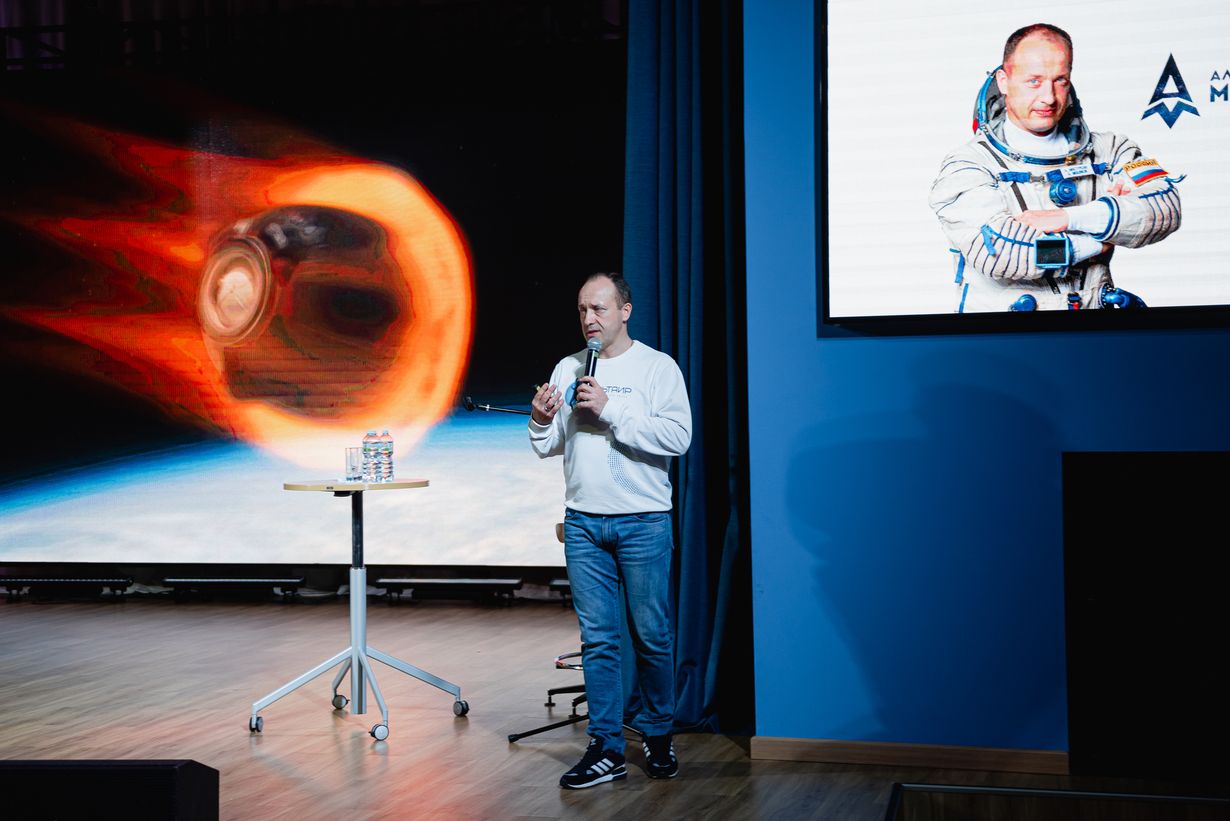





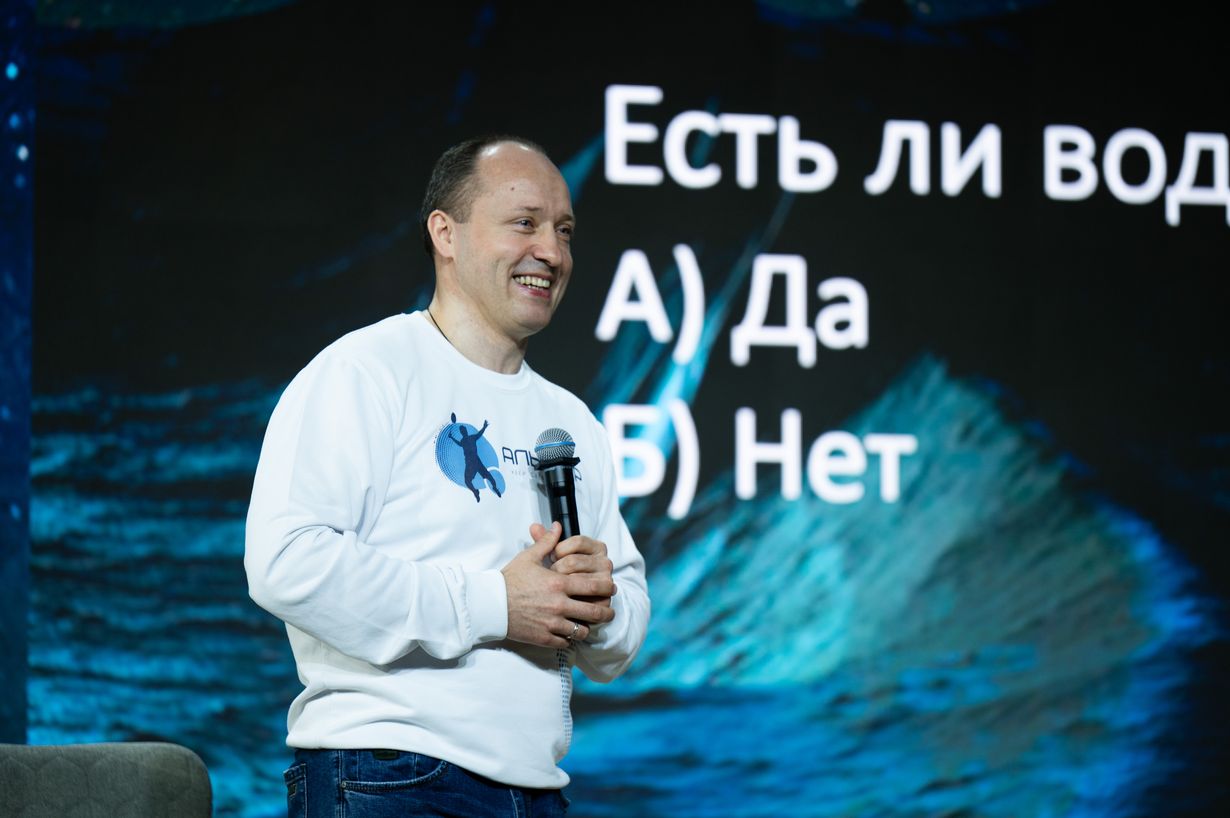


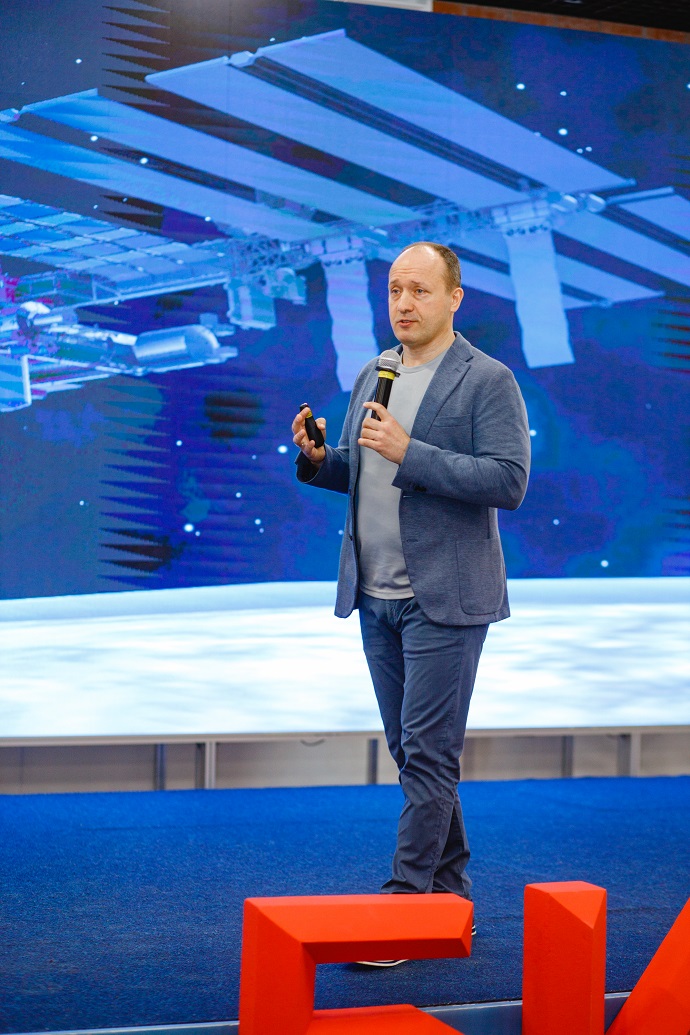


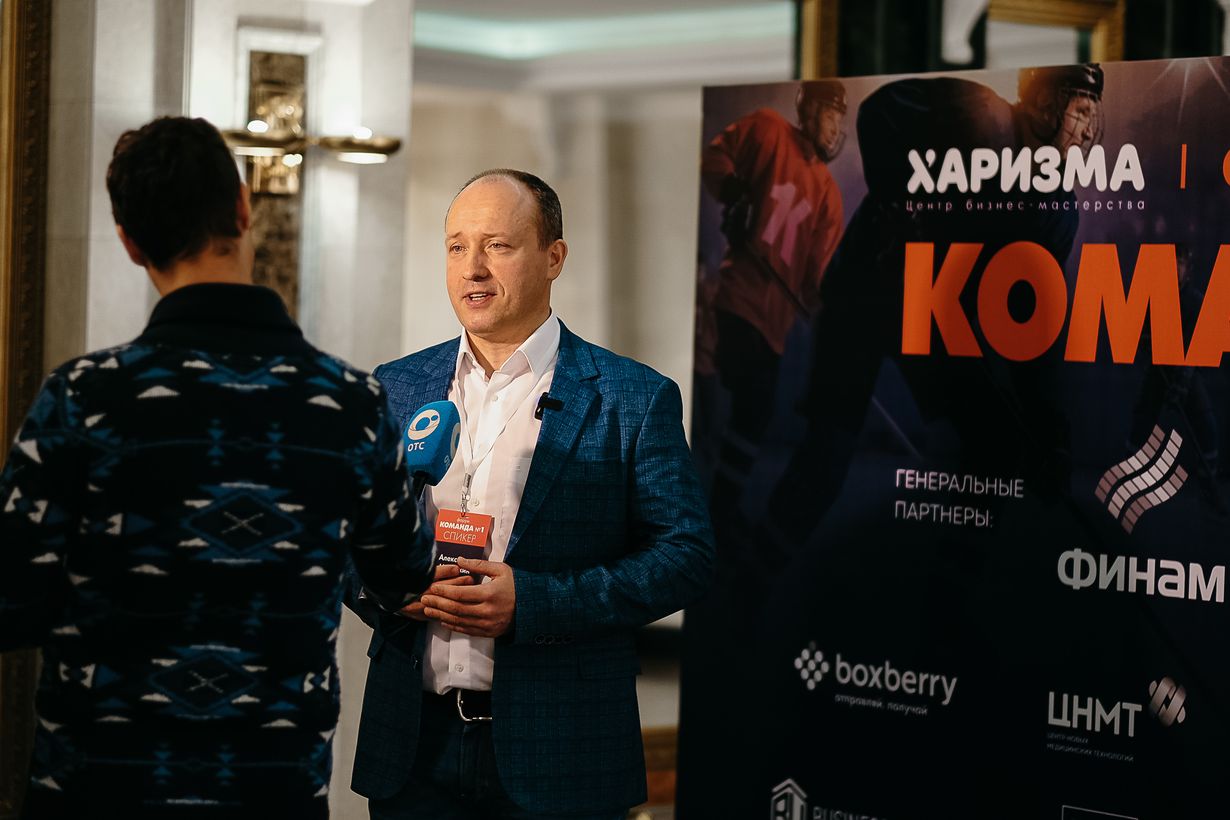


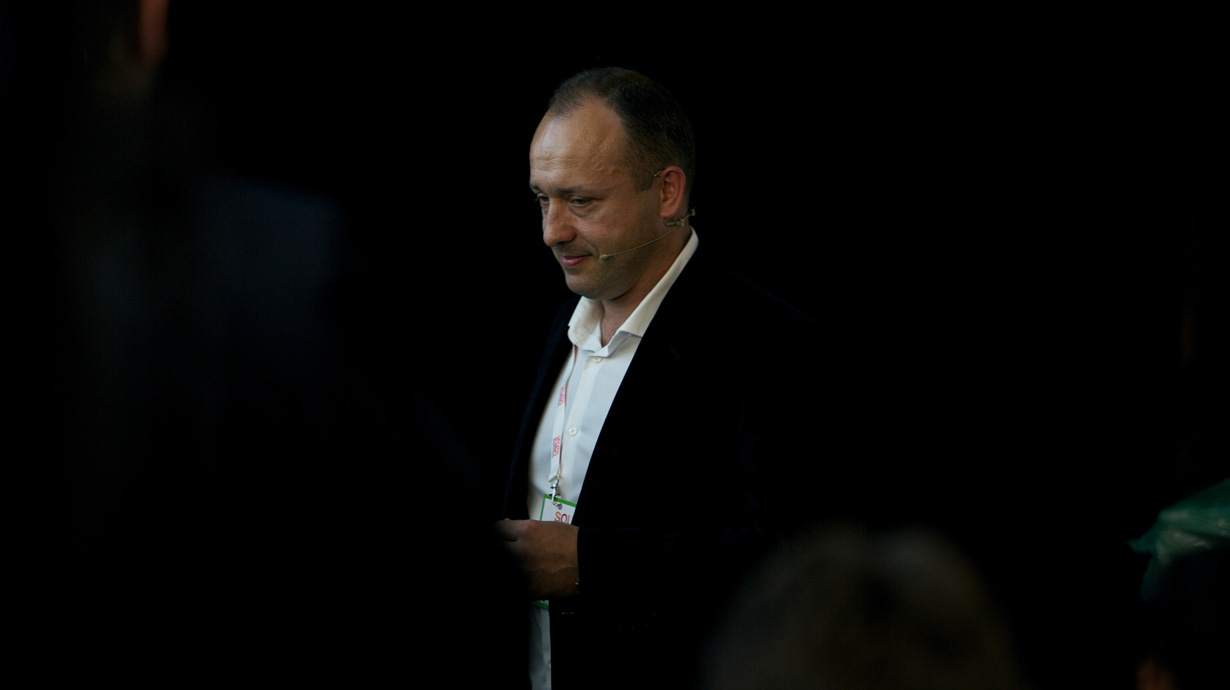


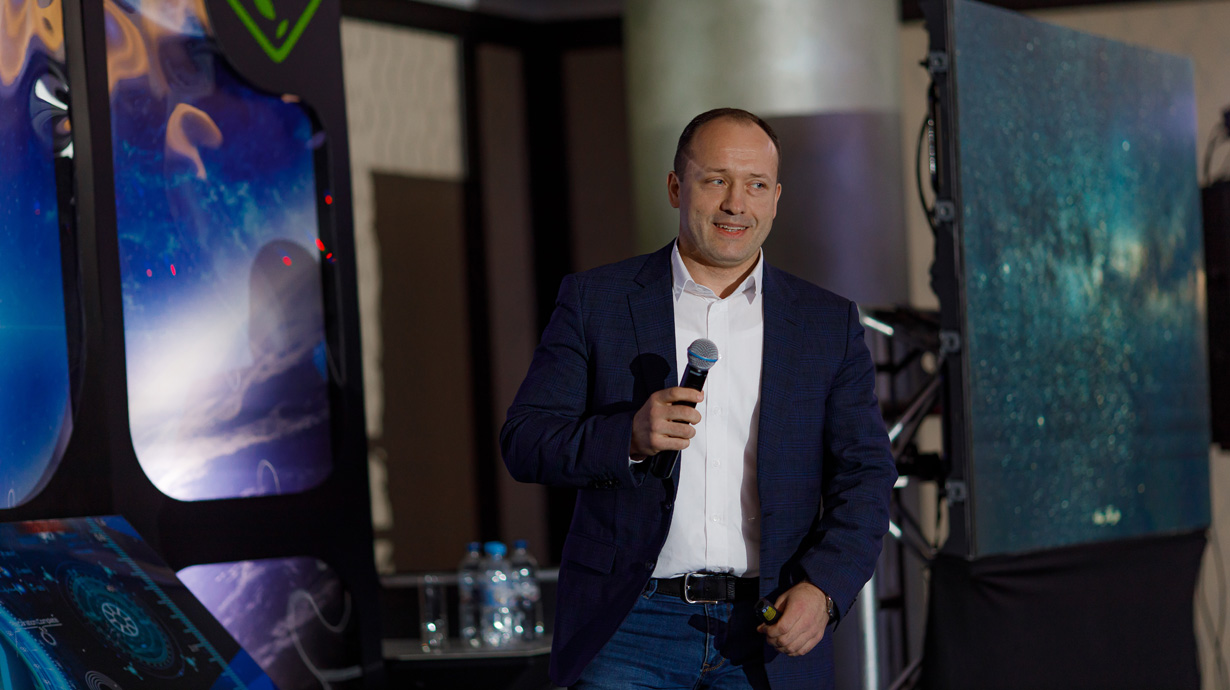


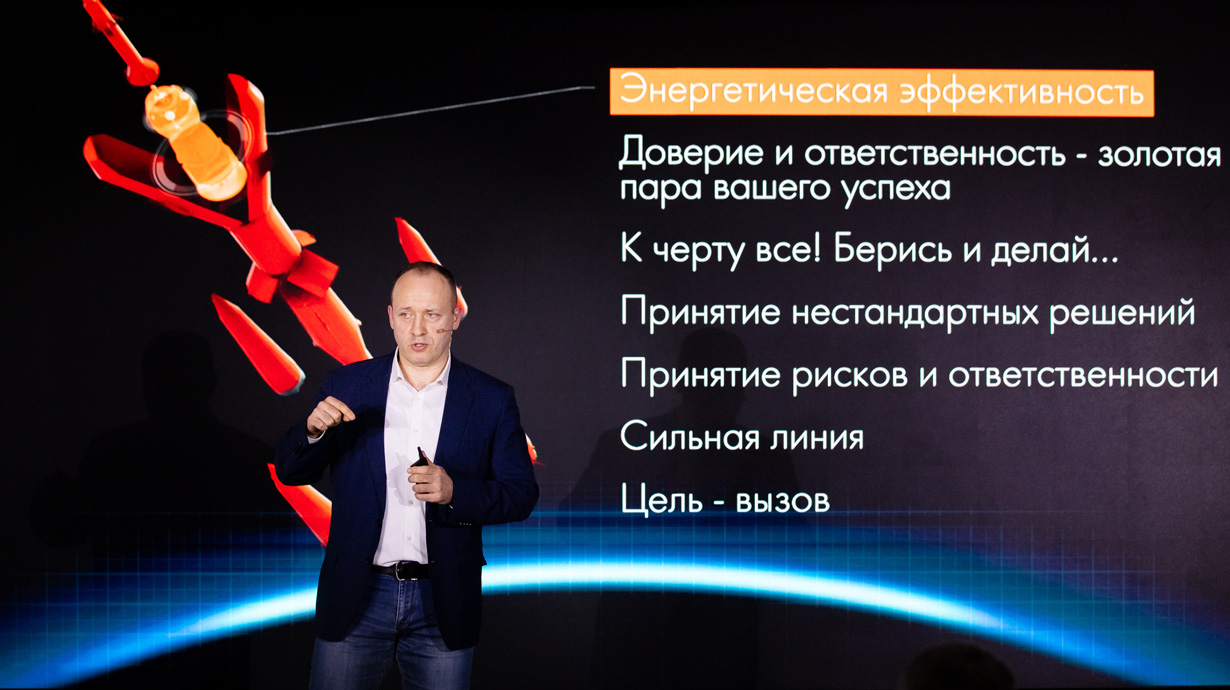






Customers and feedback












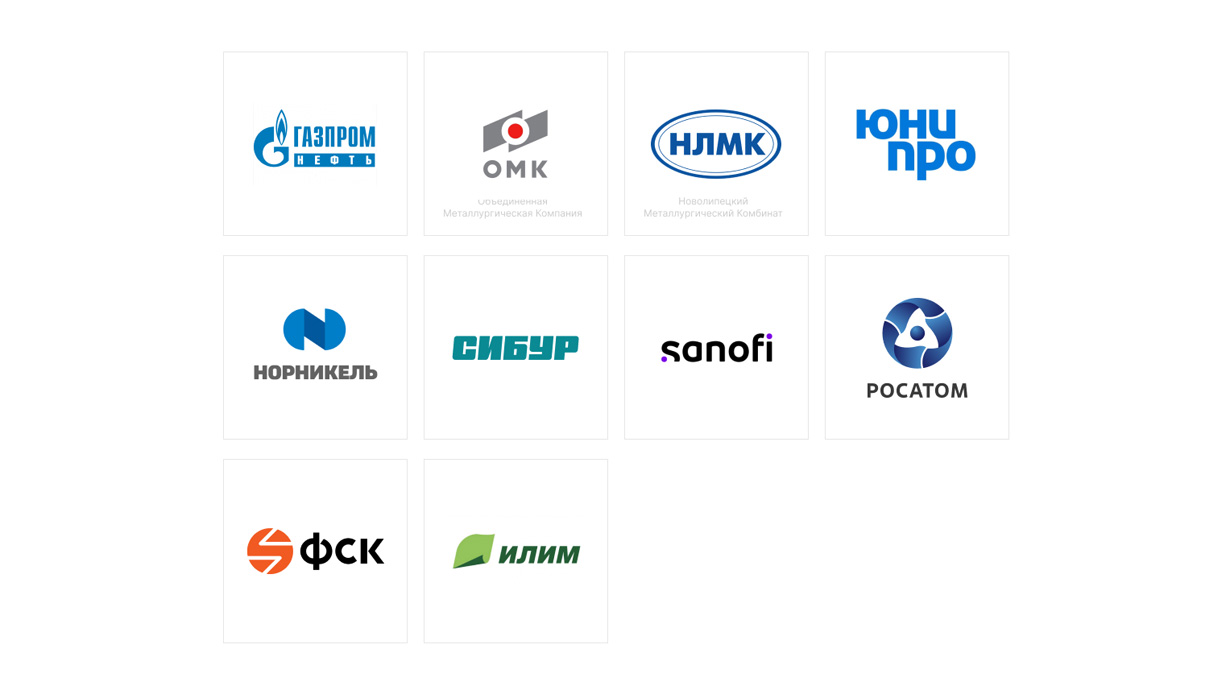











Another space
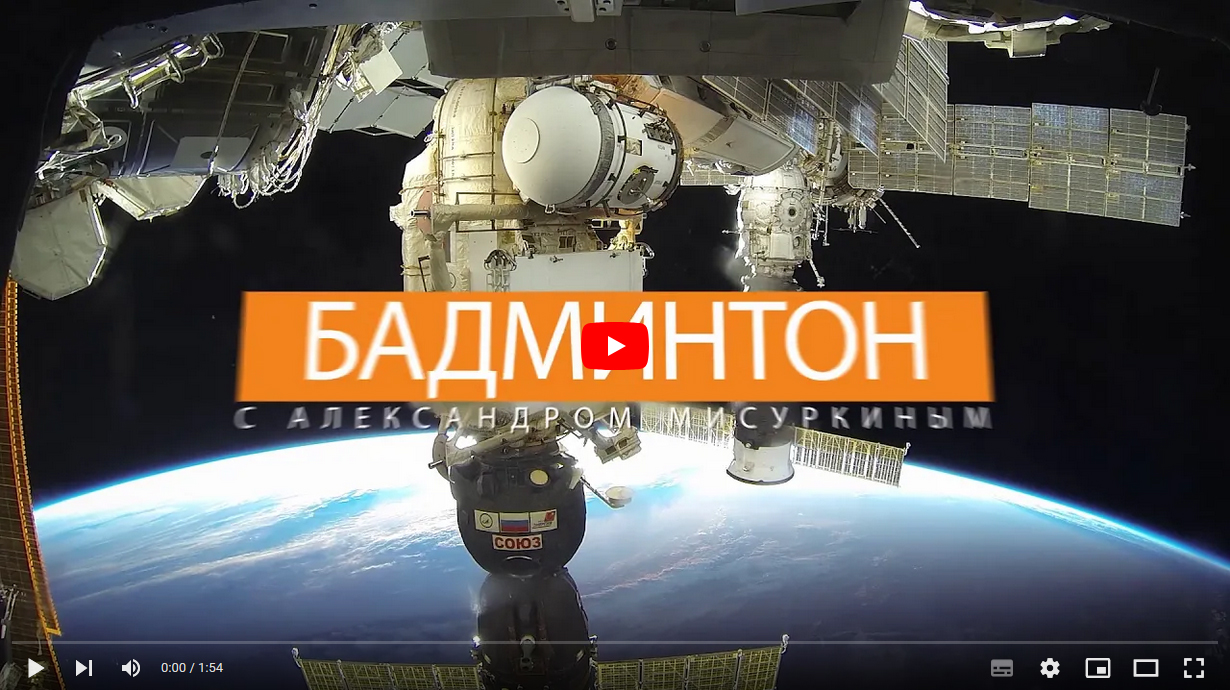


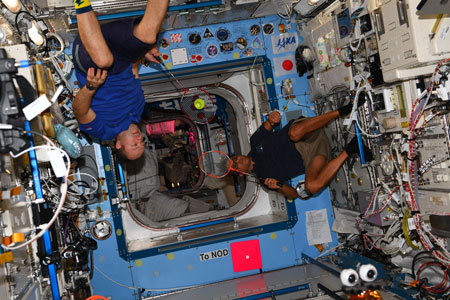
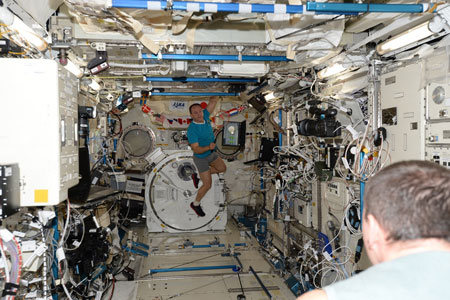
Today I know for sure that badminton is not just a sport, it is a lifestyle that allows you to increase its duration and quality of life. I hadn’t seen more mobile people at the age of 65 than those on the badminton court. In my opinion, the best way to relieve stress and have fun with friends is to play badminton. That’s why on January 1, 2018, the entire crew played badminton aboard the ISS. Thus, badminton was the first playing sport to leave the Earth’s atmosphere. Wishing to share badminton with our fellow countrymen in the Oryol region, we created the Badminton Federation of the Oryol region. We started by setting an unofficial Guinness World Record on June 23, 2018 — I was playing badminton with all wishing people for exactly 24 hours. And on August 04, 2018, we held our first tournament. Today badminton is one of the basic sports in Orel, both adults and children are engaged in it, more than 100 tournaments have been held. Start playing badminton right now and you’ll wish you had done it earlier :)



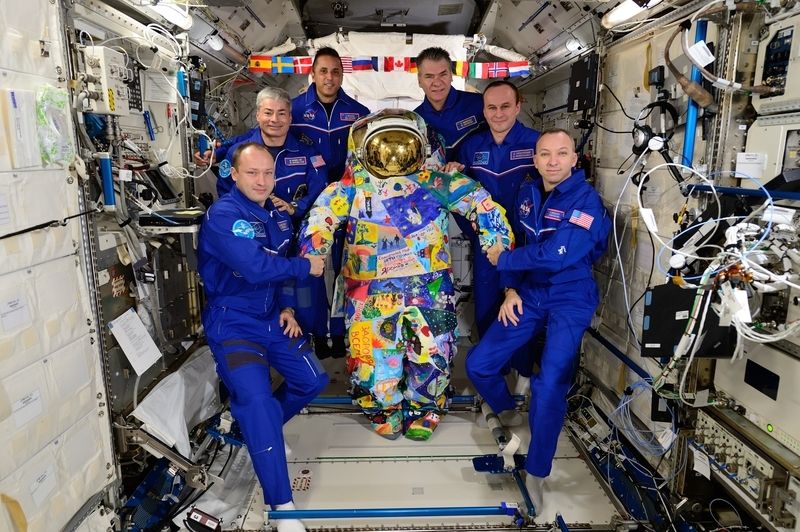
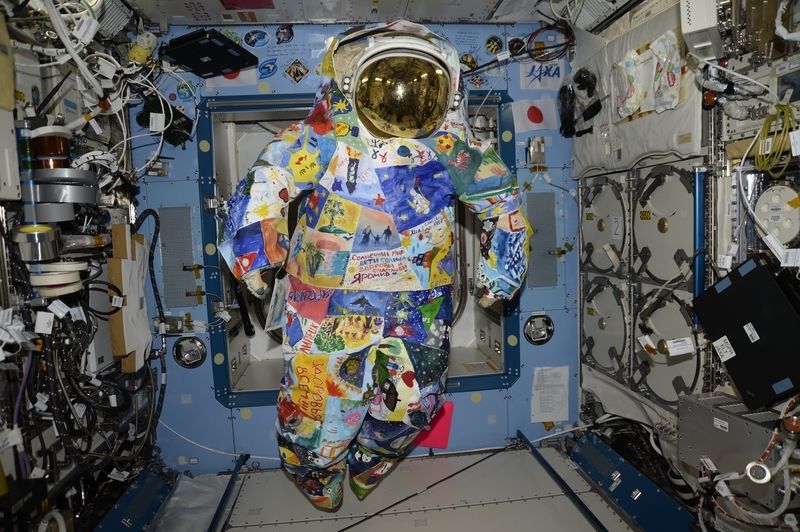
Alyona and her team «Unity» help children who have a terrible disease — cancer. They cheer them up, help to see the beauty of this world and try to attract public attention to this global issue.
ART PROJECT «The Space Suit» I had been skeptical about art therapy until I accidentally heard a legend about the 19th century glass-blower from the town of Gus-Khrustalny, Razumey Vasiliev. The legend has it that for his sick daughter this master made a bouquet of crystal flowers which helped her to feel the joy of life again and to recover. This story touched me to the quick and I saw the essence of what Alyona was doing. And later we were able to create a special «overcoat» for the spacesuit Orlan, to deliver it to the board of the international space station and then back to the Earth. We called it «Victory». Little patients from various cancer centers with the help of the artists from the Unity team painted «Victory» — they depicted on it their most secret desires. On board the international space station I looked through the children’s paintings and one of them caught my eye at once — it was a little prince, to be more exact, a Little Princess with her rose. It was a curious coincidence because right at that time I was listening to the audio-book «The Little Prince» by Antoine de Saint-Exupéry. It made me know at once which emblem I and Anton Shkaplerov would use for our spacewalk. I am grateful to all my colleagues who helped us to carry out this project, those of them who managed to remain kind-hearted and capable of thinking not only about personal benefits. I wish all our little painters a quick recovery!
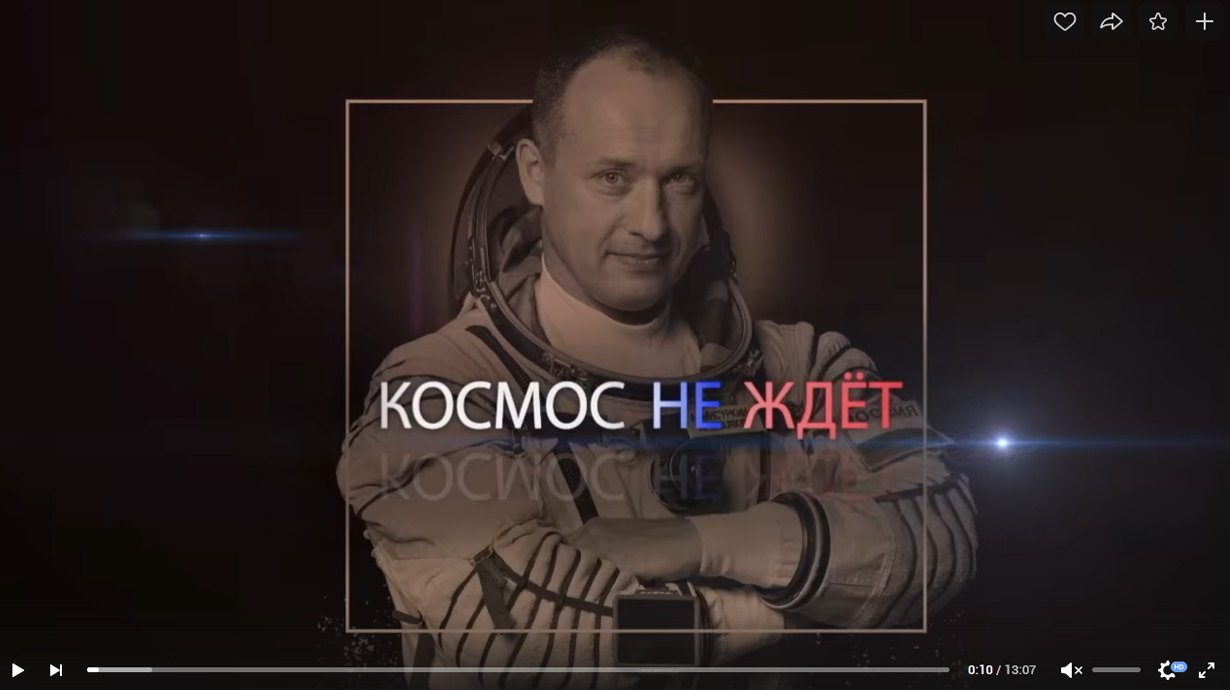


Space industry market 5 years ago was €250 billion; today it is €300 billion, which is 7 times bigger than the Artificial Intelligence market. By mid-century, the space industry market is projected at the level of €2.3 trillion. This means that the space is closer to each of us than we think. That’s why we organized this project together with the Cosmonautics Museum in Moscow, in order to highlight the history of space exploration in the past, its development in the present and prospects for the future.
Our project was awarded the 2nd degree diploma of the All-Russian Prize «For Fidelity to Science» in the category «The best online project about science,» but most importantly, the project was interesting to our citizens. And I will be very happy if it helps in the formation of future followers of Sergei Pavlovich Korolev and Yuri Alexeyevich Gagarin, because space will not wait!




Essays
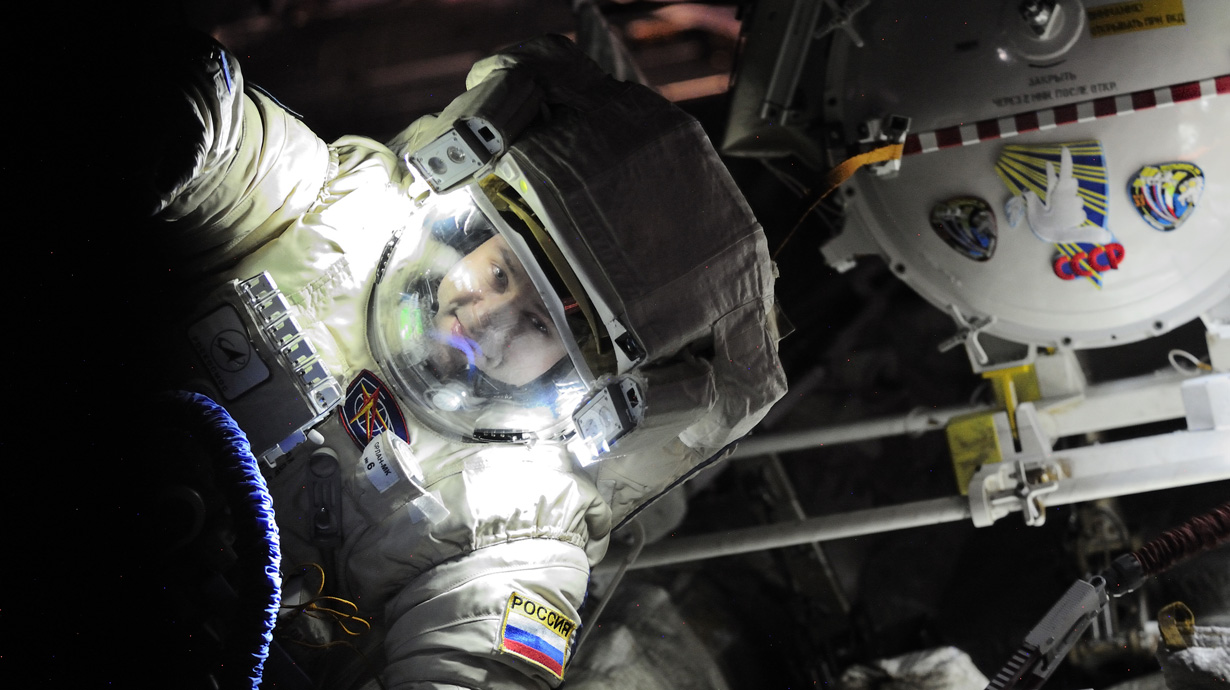


One of the reasons I love the profession of an astronaut is that the whole process of preparing for a space flight gives you a wide range of tools for personal development, for example, to increase the level of self-confidence. And the degree of influence of this trait on our life achievements and life satisfaction in general is difficult to overestimate.
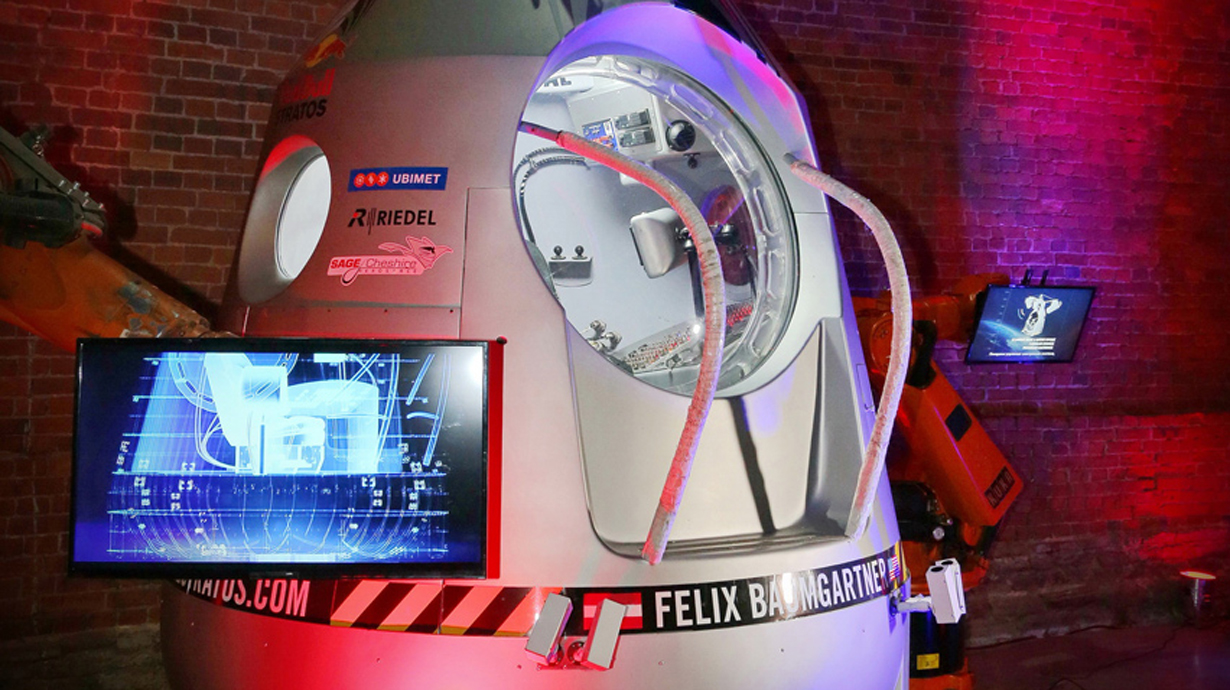


I’ve been asked many times, «How come that so many boys and girls dream about space but so few of them achieve their dream?». I explain that it is very important not to be afraid of your ambitions, deal with the challenges and go on to pursuit your goals.
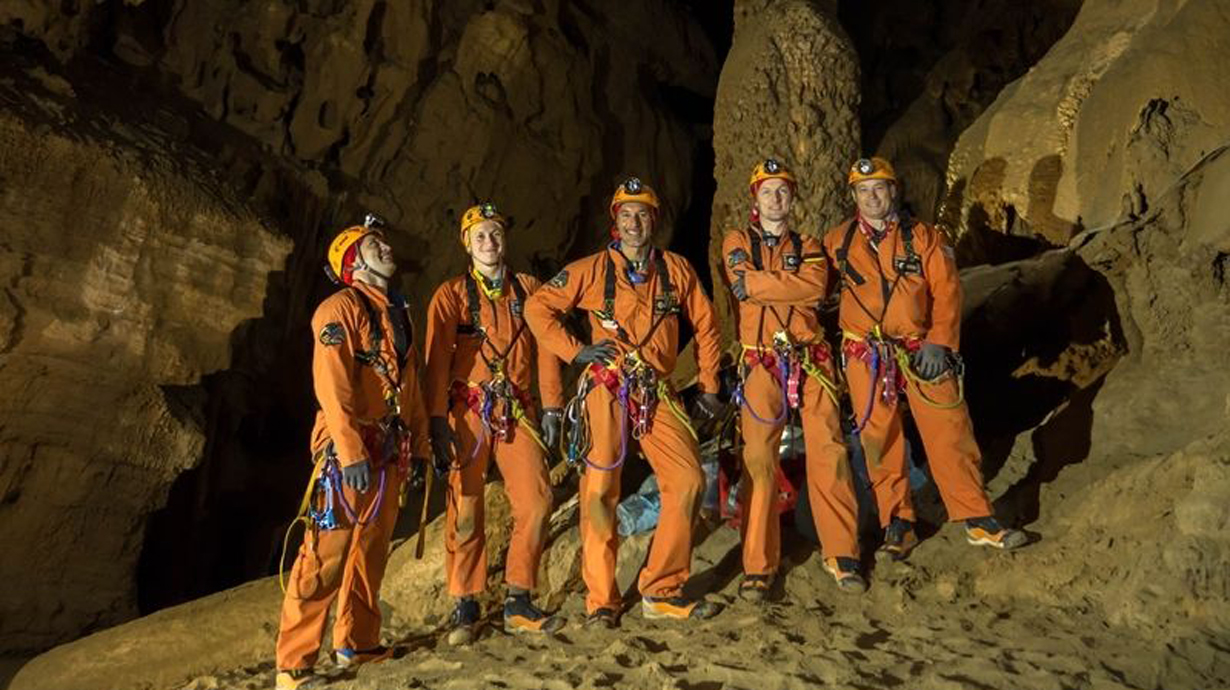


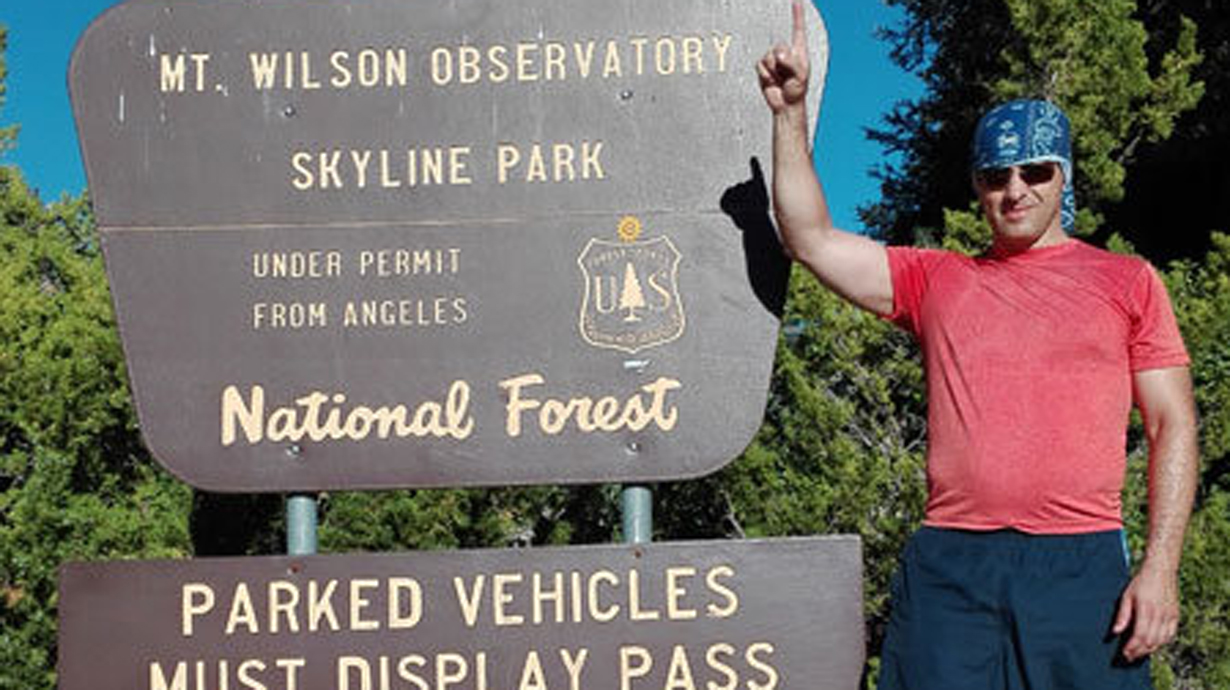


When I was at one of our regular sessions in Houston, I could not but fly for a weekend to visit my friend in Los Angeles, simply because we are close friends and also because we had some business to finish...
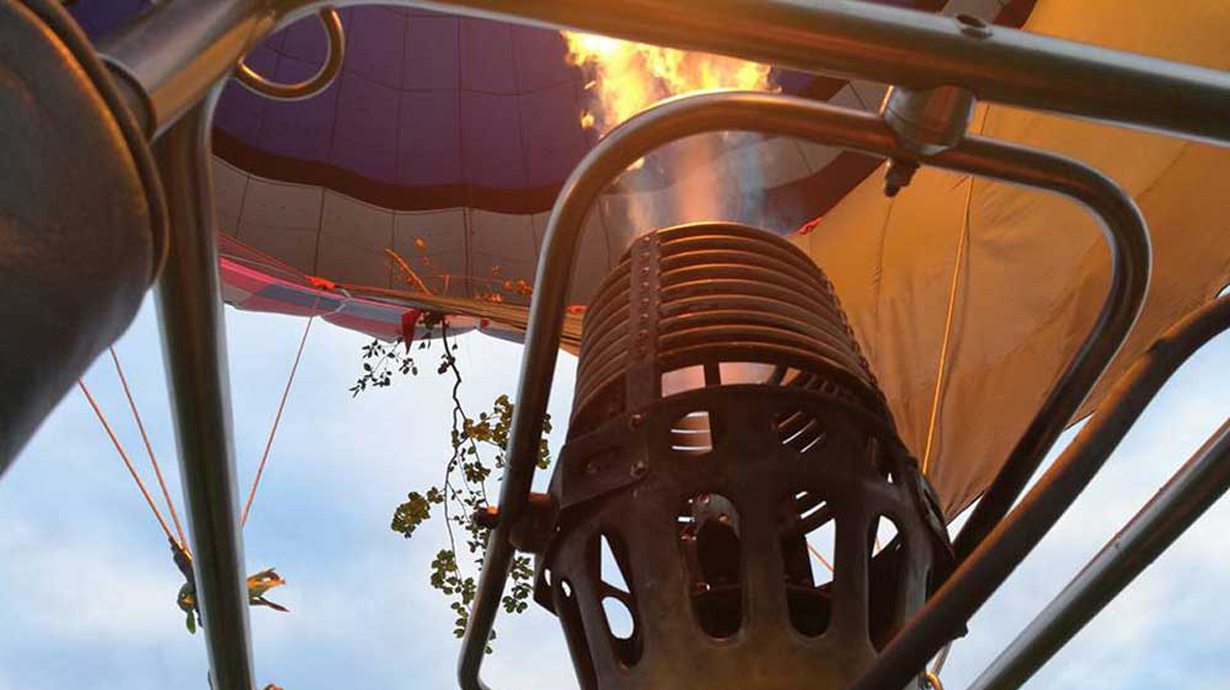


The examination complex training is far behind now, I can breathe out and relax for a couple of days. We have not yet left for Baikonur to see off Sergei's crew, but we are already beginning our preparation and training as the main crew of the Soyuz MS-06 spacecraft...




Send an Invitation
Сообщение отправлено
Тестовое модальное окно
May 19, 2023
One of the reasons I love the profession of an astronaut is that the whole process of preparing for a space flight gives you a wide range of tools for personal development, for example, to increase the level of self-confidence. And the degree of influence of this trait on our life achievements and life satisfaction in general is difficult to overestimate.
One of such tools is certainly training to work in outer space. I will never forget my first feelings of being in a spacesuit. I wanted to scream: «Let me out of here!» It was cramped, stuffy, uncomfortable, but even when I got used to it a little, I was still filled with indignation: «How can you do anything at all inside of it???» And the next thought: «I will never be able to do this.» And then a few breaths and exhalations and you say to yourself: «Well, other people are also people, since they did it, then you can do it.» And then, step by step, you slowly begin to painstakingly look for ways to perform this or that operation. And so again and again.
Time passes, and you realize that it’s not as terrible as it seemed at first. As a result, extravehicular activity, or spacewalk, is the most difficult, but nevertheless, my favorite part of working in space. I was lucky to do it four times and twice set a record for the duration of work in outer space in Russian spacesuits.
This experience gives me great satisfaction and confidence that no matter how far you are from your goal today, you always have room for a step forward and the more effort this step takes from you, the more it will mean to you and the more it will give you.
September 13, 2018
I’ve been asked many times, «How come that so many boys and girls dream about space but so few of them achieve their dream?». I explain that it is very important not to be afraid of your ambitions, deal with the challenges and go on to pursuit your goals.
After hearing my answer, which is by the way 100% true, some people might think that astronauts are some sort of real-life super heroes: they wake up in the morning, do their morning routine, watch the sunrise through the window while thinking about their super-hero tasks for the day. And in the evening, they come back home, wiping sweat from their foreheads, happy with the Superman job they’ve done, watching the sun go down and thinking «Done».
Well, I secretly wish that was true, but, as people say, «It is tales that are quickly spun, deeds are sooner said than done».
There’s a curious thing that happened to me in the past 2019.
You might know already that I’ve founded the Badminton Federation of the Oryol Region, which announced itself publicly in May 2018 and has been developing at a steady rate ever since. However, like it or not, any development needs money. It’s been my job to find sponsorship to promote such development. And then, one day, at the beginning of 2019, I had a meeting with my friends from the banking sector to discuss the funding issues that I was concerned about. Their answer was quite definite, «We can’t give out money for the sake of development. However, we might think about supporting some international events». And that’s when the thought popped in my head, «That’s the thing! We need a tournament! How could I miss that?». My mates from the badminton community tried to bring me into my senses and claimed that 6 months is too little to obtain the WBF approval for an international event. But even though we had only 1+ year experience, my colleagues offered me to organize and hold the Russian Federation Junior Grand Prix 3* tournament (the highest rank possible because I wouldn’t agree to something less), saying, «It’s easier to support you than stop you».
On the one hand, I was very thankful for their trust, and I knew that I couldn’t fail. On the other hand, it was a big challenge both for me and for the entire team. Indeed, none of us had any experience in holding authorized sports events even at a regional level, not to mention nationals. A lot needed to be done and learnt, but, like it or not, money is the cornerstone of everything. You need money to buy shuttlecocks, pay the rent and do many other things. As time flew by, the people, who put the idea of a tournament into my head, kept silent about the sponsorship. Finally, six months after, they sincerely apologized to me and explained that, unfortunately, they wouldn’t be able to help us due to some reasons beyond their control.
Nevertheless, we did hold the tournament, and quite successfully, I should say, because we didn’t just sit back and do nothing, waiting for pennies from sponsors. This challenge became a landmark, a point of transition to a new level. Suffice to say that in the current 2020, we have already been entrusted with 5 interregional and national competitions.
First of all, I am writing all this to extend my sincere gratitude to those people, who put the idea into my head and boosted my confidence to organize a high-level tournament. Even though those people were not able to support us financially, they contributed to our development greatly since we managed to do everything on our own. And we didn’t even think we could.
And secondly, this is another example of how we put limits on ourselves! It does not matter what heights/depths you have reached before; every day is a new challenge and it’s up to you to decide if you can handle it or not. You need to remember that you can go beyond the horizon of public stereotypes and change the way you see or do things (1.5-minute video about the power of stereotypes).
I think you wonder, «Why does he show us these photos?».
The answer is simple. These photos were taken at an exhibition at Planetarium No. 1 in Saint Petersburg. These are the Red Bull Stratos space suit and the capsule that helped Felix Baumgartner break the speed of sound in freefall on October 14, 2012. I want to show these to you because they remind me that the sky is not the limit, the mind is.
«...we climbed up the ropes, then down, then up again ... then we swam across underground lakes and at those moments I recalled scenes from modern science fiction films I so well knew - «This film seems to be shot on this location, and that film seems to be shot here…» It was so breathtaking!»
Extracts from the diary:
8 september 2014
...Today we went into a cave, for the first time in my life. It was a cave with the beautiful name of saOche, which can be translated as «Voice». They say it warns cavers about an upcoming danger ... (let’s not talk about this today).
I had never experienced such positive emotions before. Well, perhaps only when I flew low- altitude aerobatics with Viktorovich, then I was so filled with the same feeling of delight that I couldn’t hold my emotions to myself and shouted with delight.
SaOche is a beautiful cave with a system of underground lakes, we swam there in rubber diving suits, enjoyed the beauty of this new world which I was just opening to myself and about which I had had no idea the day before...
Tomorrow we will talk about stressful situations in which Loredana would like to put us.
It suddenly came into my mind that there are two types of stress. One is sudden and strong, the other is not so strong but of a longer effect! These are two different kinds of load. The resistance to the first type of stress we successfully train when we jump with parachutes and perform flights. The second type of stress manifests itself in such situations as finding oneself in caves, when you are forced to be there not for several seconds or minutes but for days and weeks.
9 september 2014
... So in the course of survival-in-the-cave trainings man’s resistance to the second type of stress is perfectly trained. I mean that this is the way to create such life conditions which seem not to stress you out within short periods, say, an hour or two or even a day, but within a week the total impact of all external factors on you is much greater than the stress that you can experience jumping with a parachute, even with 40-second delayed openings.
So, today our luggage was brought, by evening time my leg seemed to be in perfect shape again, the first symptoms of the flue (caused by drinking cold water) were got rid of with the remainder of the mouthwash (with which I rinsed my throat), I got to know the people better and our communication became more comfortable. Life is getting better. :)
We trained our main actions in the cave, edged our way through narrow tunnels ... and saw another beauty of the caves which captivated me the same much as yesterday's swimming in the underground lake! After that I made for myself two major safety rules:
1 Before making any sharp movement in a narrow place you should look carefully where your head or your back will happen to be, so as not to hurt them against, say, hanging stones;
2 No matter how captivating and breathtaking the entrance into a new gallery is you should not rush forward but look back and REMEMBER the way back!!! ...
10 september 2014
The Sos Jocos cave day ... …let’s continue our talk! The day was perfect today!
What I really like is the fact that even though we work every day from 7.3 am till 10pm and so there is only one hour left to have access to the Internet and to wash ourselves ... and there is no time for sleep at all, but for all that every day I have new and only positive impressions and emotions!!!! And I am grateful to the Lord for letting me meet such wonderful people like Scott and Loredana.
So, today was a great day which we spent in the cave called Sos Jocos, this name means «Games». Can you guess why? Our task was the following. In groups (our group included Scott, Antonio and me) we should go ahead following the instructor and make our way through all the cave cracks after him. At the end by your wish you could try to move through the narrowest of them on your own, it was so narrow that you could easily get stuck in it ... I was twice as happy. First, because both Antonio and Scott unanimously agreed to overcome this obstacle together with me (it seemed that in the other group not all the members were unanimous about it), and secondly, I ticked myself off a little leading the way through this narrow tunnel (it wouldn’t have been so interesting if I had followed anybody).
So, this cave is called «Games» because there are many tunnels there which go in different directions. Our instructor Francesco (it is a male name, don’t mix it with the female name Francesca) deliberately moved a bit faster for us not to be able to remember the way back, so on the way back we really lost our way twice. One time we were not ashamed of it because the instructors themselves stopped us as they did not want us to go along rather a slippery balcony, so it was for our safety reasons. Though when we were walking along it, it was obvious that we were taking the right direction. But the second time the situation was so ridiculous that we were ashamed of it - we got out of a relatively narrow tunnel into a fairly large gallery, several narrow tunnels led from it in different directions. Nobody remembered where we should go next. We began to try to move through one, then another, and we did not notice a huge opening of a tunnel just on our right (do not forget that in caves all the light comes only from helmet lanterns)... Besides, at the end of the path Loredana helped me with a hint one more time ... I felt thankful to her but at the same time a little upset because she had to do it.
As a result, we with Scott decided that if we went to study new caves again then every time we would draw «a map» with the number of tunnels and the information which one we picked up and which one we would take on our way back.
After reaching the surface we had about 20-minute rest in a little open-air cafe indulging in a small glass of beer and pleasant relaxing music. I was sitting enjoying the atmosphere around but even more pleasant for me was the understanding that even though this trial of the day was not easy but in our group there had been no tension.
It is nice to understand that you can do it. And it is even nicer to understand that we can do it together! Speaking about psychology. I understood today that with Scott, Mathias and Sergei I would get on well. Scott and Mathias feel the same about me, for Sergei it is not difficult at least... Luka is a good guy, he can easily be the heart and soul of the company, he instantly grasps your ideas, before you can say a word (he is obviously an excellent pilot) ... ...Well, well, my mind seems to be so tricky … I have never treated this seriously. Thank you, Loredana.
Good night to everybody.
11 september 2014
So, good evening, everyone!
Tomorrow in the evening we are going into a cave for six days. Today has been a hectic day with everyone’s learning the basics of mountaineering. I think everyone has learned it well enough, though this volume of vital information and skills should not be learnt and practised on one day only. As Francesco said it takes novice cavers a week to get trained! Mathias surprises me in a positive way. He is a scientist, an engineer by education, he has a broad outlook and certain leadership qualities. By his good and not abrupt manners you could easily think that he wouldn’t survive any strenuous physical activity in non-standard conditions. But it turned out otherwise! At the same time we easily understand each other. I am sure that we are going to feel easy and comfortable together.
Well…I feel strange taking notes of my thoughts and thinking about it at all. Perhaps it is another proof that it takes me longer to grow up.
So, in general, now everything is in its place, everything is ready and all is quite clear to me. To tell the truth, I wouldn’t have been able to do it any better. We are all ready and this shouldn’t be a trial for me (I am not going to count the days there, in fact) but a terrific journey in the company of great people!In two minutes the lights and hot water will be turned off – I have to rush to take a shower!
In the caves, as well as during the parachute operations training there were such people around us who did not just do their work but for whom the sky or caves were their universe. These people are great professionals, they ceased to think about getting any profits for their work or maybe they have never thought about it at all, they just do the job of their life, it is their world. And it is obvious that because their job in the both cases has to do with a very serious risk, they all are men of generosity and honesty, and you feel it when you find yourself near them, looking into their eyes, talking to them. Kindness, openness, warmth, calmness, self-confidence, inner power, an excellent sense of humor – they all have these features which make you feel respect for them and arouse in you a desire to be like them. For me, being beyond the borders of our everyday reality, in an enchanting and extraordinary New World, surrounded by these amazing people who are so unlike others, was a real gift of fate! I will be forever grateful to these people for opening new worlds to me, introducing me to them, opening their hearts and souls to me and for helping me to become better.
July 25, 2016
When I was at one of our regular sessions in Houston, I could not but fly for a weekend to visit my friend in Los Angeles, simply because we are close friends and also because we had some business to finish ...
We were so happy to see each other again that time flew that evening ... and all of a sudden it was morning again and we were standing at the foot of Wilson mountain. This time we were to make a 50-kilometer speed march which we had planned the previous time when we met, along the winding mountain paths.
Technically speaking, there were new nuances about this adventure. For example, we had to run along a path that was narrow and far from being hard under our foot. In addition to that, under the overgrowth of bushes, trees and bizarre century plants (Spanishsolder) which had very big and spiny leaves, this path was edged to the very brink of the cliff. Realizing that it was hardly possible to descend the path and come into the gorge without any assistance remaining safe and sound at that, and knowing that our mobiles were not catching a network signal, we fixed our eyes on the path not to stumble and lose our footing. Besides, the shadows cast by all this rich vegetation on the ground were uneven and broken, so they were like a mosaic made of curious dark and light spots. This made it much harder for any running man to see stones and obstacles on the path. After running so for about thirty minutes I suddenly realized that my eyes were tired from running, this feeling I had never experienced before. You run in the shade, then suddenly you come out into a glaring sun, then in the shade again and so on … it felt like +38 in the shade at the foot of the mountain ...
This time, the adventure was not without some victims. While running we devoured a hundred of innocent small flies which got into our mouths some accidentally, some on purpose. And since we had a water limit of 3 liters per person it was rather stupid to wash them down with water and thus waste it. The insects left a bitter taste in our mouths ...
When we ran up high enough to meet no bicyclists in helmets and dashing down, we saw a curious structure with an inscription which had some mystery about it because it said «Cape of Good Hope» (see the photo). This house seemed closed and so this hope turned out to be somebody's irony which however seemed to give additional acceleration to the cyclists in whose eyes we could see a new hope whenever we met them.
Anyway, it was already dark when we crossed the longed-for finish line with the figure of 50.5 km on it, and without changing our clothes we headed to the nearest store to buy champagne. Our legs were tired from running and weak at the knees, the muscles were stone-like, the blisters in silent bewilderment and with every step seemed to cry: "Who needs it? And why?” Sweaty all over and covered with dust, we crept out of the car and to onlookers we could look like two Winnie-the-Poohs that had climbed onto a tree bee hive where they ate too much honey, were severely stung by bees and fell down from the tree onto the dusty ground. That was how I pictured us to myself.
But my story today is about another thing. When I was in the so-called first form of my «space school» preparing for one of our regular tests - the soundproof chamber, I learned that every cosmonaut (to be more exact, the commander of a crew) had to pick up his own unique calling signal before the flight. In addition to this training we had to study other disciplines, among them the stellar map, and at once I knew that my calling signal would be «Altair.» With it I passed my test in the soundproof chamber. Later I learned that my calling signal was already used by some other cosmonaut. Never before had anyone taken the same calling signal as somebody else, but I so strongly felt it was my signal and I did not want any other. I thought about it and suddenly a bold idea came into my mind - to ask the respected and experienced cosmonaut Gennady Ivanovich Padalka to let me use his calling signal when his flying career was over. When I was appointed commander of the Soyuz MS-04 spaceship and already had experience of spaceflights as a flight engineer, holding my breath I blurted out my humble request to him ... And I heard: «Why not? This calling signal should continue its flying career. Sasha, come on, let’s maintain this tradition!» I was happy though could hardly believe my ears.
Gennady Ivanovich, despite his solid experience, continues his flight and parachute trainings, which are my favorite ones. We make a pair when we play badminton. Recently he has performed an aerostat parachute jump. It is obvious that we have some similar interests, perhaps, even some traits of the character ... And the wish to fly with the same, very specific calling signal «Altair» can be a proof of it too. Perhaps, there is some truth when people say that the name not so much shapes your personality but rather characterizes you in a certain way.
So these were my thoughts which I shared with my friend during our speed march.
— And when I was young I was a leader of a student construction team called «Altair»! The man was smiling at me. The man who has constructed rockets since his early childhood and who now works at the most daring and exciting space project of our time. The man who is Dr. Sci. in Physics and Mathematics, Professor of Moscow State University and UCLA, a leading researcher at JPL NASA, a corresponding member of the International Academy of Astronautics (IAA), Candidate for Master of Sport in weightlifting ready to test his stamina and mould his character in difficult situations, and my friend - Vyacheslav Gennadyevich Turyshev!
Right was the poet saying «So, what then is my name to you?»!
July 10, 2017
The examination complex training is far behind now, I can breathe out and relax for a couple of days. We have not yet left for Baikonur to see off Sergei's crew, but we are already beginning our preparation and training as the main crew of the Soyuz MS-06 spacecraft ... That is how I started this story which I am finishing here at Baikonur during the pre-launch training of the crew of the Soyuz MS-05 spacecraft. Anyway, I would like to share with you my unusual experience and unforgettable emotions that I had not so long ago.
Talking about my flight experience, I can say that one of my favorite flight assignments has always been training the skills of performing a final approach and landing in the situation of an engine failure. A pilot performing this landing approach should be capable of analytical calculations in real time and have perfect piloting techniques. You should compare the rate of the altitude decrease and the rate of the reduction of the distance to the airfield, taking into account the wind which can vary at different heights, and you should try either to shorten or extend the landing path, then you extend the flaps for landing a bit sooner or a bit later – all this is done to finally approach the runway at the correct height necessary for landing. And if in the case of a regular landing the altitude should be 260 m when the plane is 4 km away from the runway, then in the case of simulating an engine failure at the same distance the altitude should be 1000 m (for an L-39 aircraft). At first it seems that you do not just glide down onto the runway but nose-dive onto it and it happens at a higher speed if compared to a regular landing. This is an unforgettable feeling and real satisfaction when you realize that you have managed to do it – analyzed and calculated every detail, made corrections when necessary and finally landed the aircraft within "the exact landing area". Later on I found out that during the preparation for the Lunar program to train the skills of landing onto the Moon Soviet cosmonauts were trained to perform the landing in the situation of an engine failure on helicopters - they performed an auto rotation landing. They were going down to a chosen area. Then under the pressure of the incoming air flow the main rotor spun and at the very last moment, a few seconds before touching the ground, the pilot by changing the position of the main rotor blades for some moments created the lift power enough to reduce the vertical speed and land safely. In April 2017 I had a chance to fly with the best pilots and to see what the simulation of an engine failure with the helicopter is! I was absolutely delighted, I really want to learn this skill when flying a helicopter.
But who could ever fancy that a landing can be performed in the emergency case of an engine failure even when you fly a balloon!
Not so long ago we decided to fly a hot air balloon with our kids. I will not describe here the details of our preparation, just will say that our adventure began absolutely quietly, the only mischief was mosquitoes which flew out on their evening hunt and which tried in every possible way to ease the burden of our balloon and carry us away one by one before the balloon was launched. Finally, we got into the air, the kids liked everything and I did too. Our pilot was very emotional and easy-going and he was an aviator too. I do not know why but I asked him: "And at what vertical speed does the balloon go down if the burner is turned off?" The answer came at once, technical and precise. With the burner switched off the balloon goes down at the same vertical speed as the parachute when novice parachute-jumpers jump with it - 5.5 m/s. I was surprised at myself for asking this question. Why did I ask about this? Another 20 minutes we spent in a beautiful drifting mode flight under the clouds hardly moving up in the sky. Slowly we were moving «forward», that is where the wind blew. A small forest was stretching below. We were «to come into a landing» right after we flew over a couple of fields spreading behind the forest, when suddenly our pilot began fussing about something and doing something quickly with the gas cylinders. I looked down and all was clear to me - we were parachuting down onto this very forest below, just like the good old D-1-5u parachute does (this is the first parachute of a novice parachute-jumper) at the speed so well known to me of 5.5 m/s ... The lower we went, the faster our pilot tried to reattach the hoses from some gas cylinders to others. I was trying to help him and kept the burner always turned on but it was unlikely to be able to heat anything. I hoped though that it would give us a chance to win at least a few seconds. This is when you feel adrenaline rushing through your veins! When an impenetrable swampy thicket was well visible below and when I saw the large black unblinking eyes of a squirrel (I am joking of course) I realized – there was no time left. I was scared, scared for the kids. Landing at this vertical speed requires a definite position of the arms and legs of the parachute-jumper for him not to get injured and any parachute-jumper knows it. As well as I do. But the kids! Besides we were not in the parachute suspension system but in the basket with the space hardly enough for the four of us and four gas cylinders! I was afraid that the kids could get injured when landing (my daughter already had a cast on her limb at that time), that the basket could land onto an old dry trunk which were in abundance around there and then topple over - how would I be able to catch and hold my kids then?! And the kids watching our fussing around seemed to have a fun of the flight ...
As soon as the balloon began to touch the tops of the trees it began to slow down and, pierced in some parts with the branches, it moved to a stop. We were hanging 4 or 5 meters above the ground, just at the level where that squirrel could be sitting at that moment and looking at us with the questioning eyes - this question I could easily guess but never answer.
I had already started to crack my head how to go down from this height and get out of the forest which was small in size but completely impenetrable, when a backup burner came to life again and using it we were able to take off and the pilot landed the balloon perfectly right behind the forest. After the landing I found out that for some reasons the main gas cylinders did not have so much gas as our pilot had thought, that this balloon was not his own and that this situation could have been easily avoided if the pilot had known the design of the burner used on this balloon: all one had to do was to switch one valve to connect another pair of gas cylinders ... I really hope that it was a good lesson for him and he drew all necessary conclusions for himself. This incident made me think about many things: the responsibility of the balloon flight organizers, the responsibility for my kids ... The kids were delighted with both the flight and «the falling down» and the situation in general. So I decided not to think too much about it.
There was only one thought haunting me - about this small forest which happened to be on our way. And only later I realized how lucky we had been to have this forest in our lives at the right time and in the right place - the landing into it turned out to be soft and safe, unlike any landing with an engine failure onto an open area. So this time, like many times before, everything turned out well thanks to the force of circumstances which do not depend on people. Someone can call it a coincidence, well, let them think so. But I would rather say «thank you» to the Lord!
Thank you for your invitation!
If you've sent your invitation outside of these hours or on a non-working day, we'll get back to you at the start of the next business day.
We appreciate your interest in collaboration!









